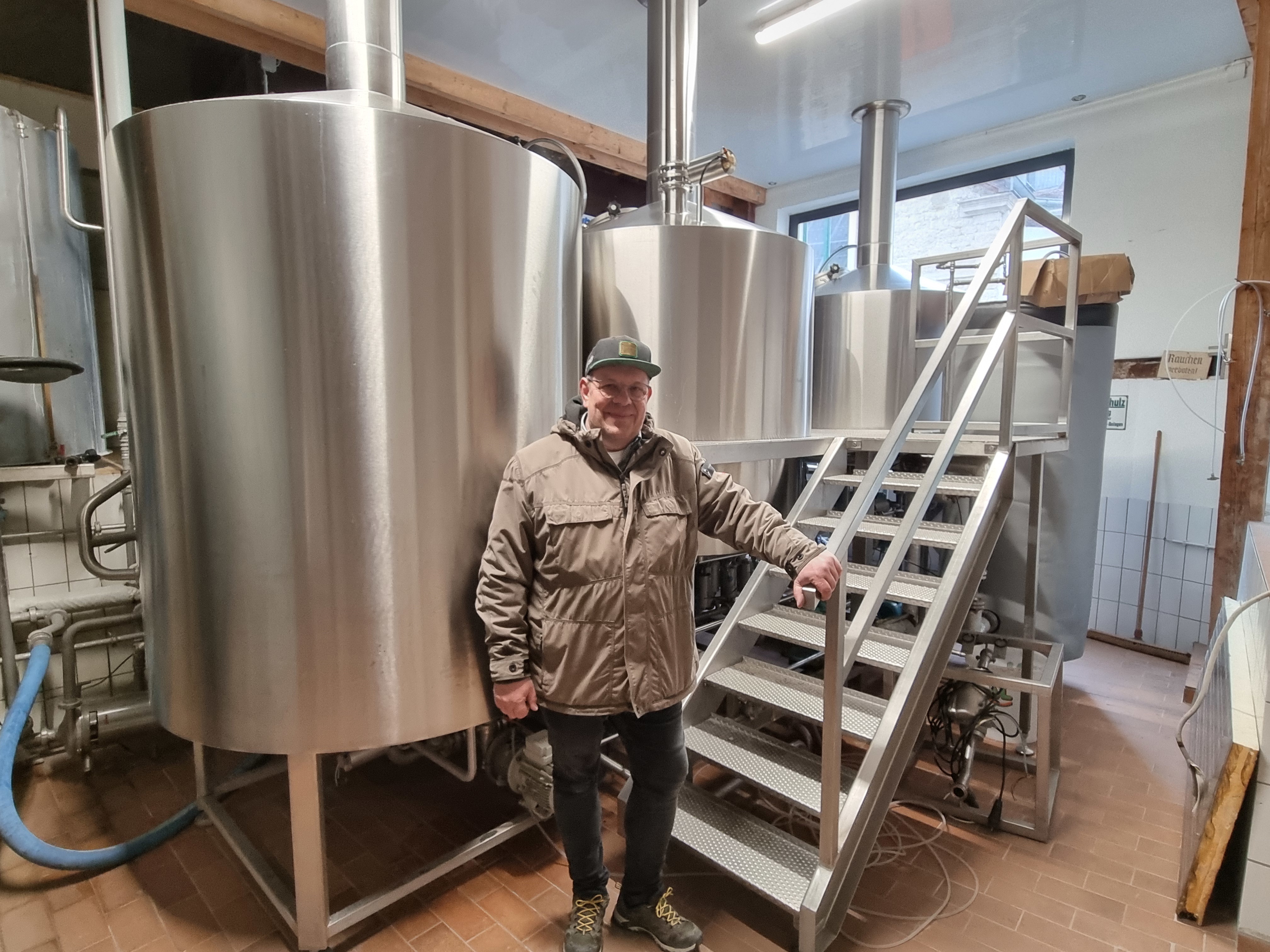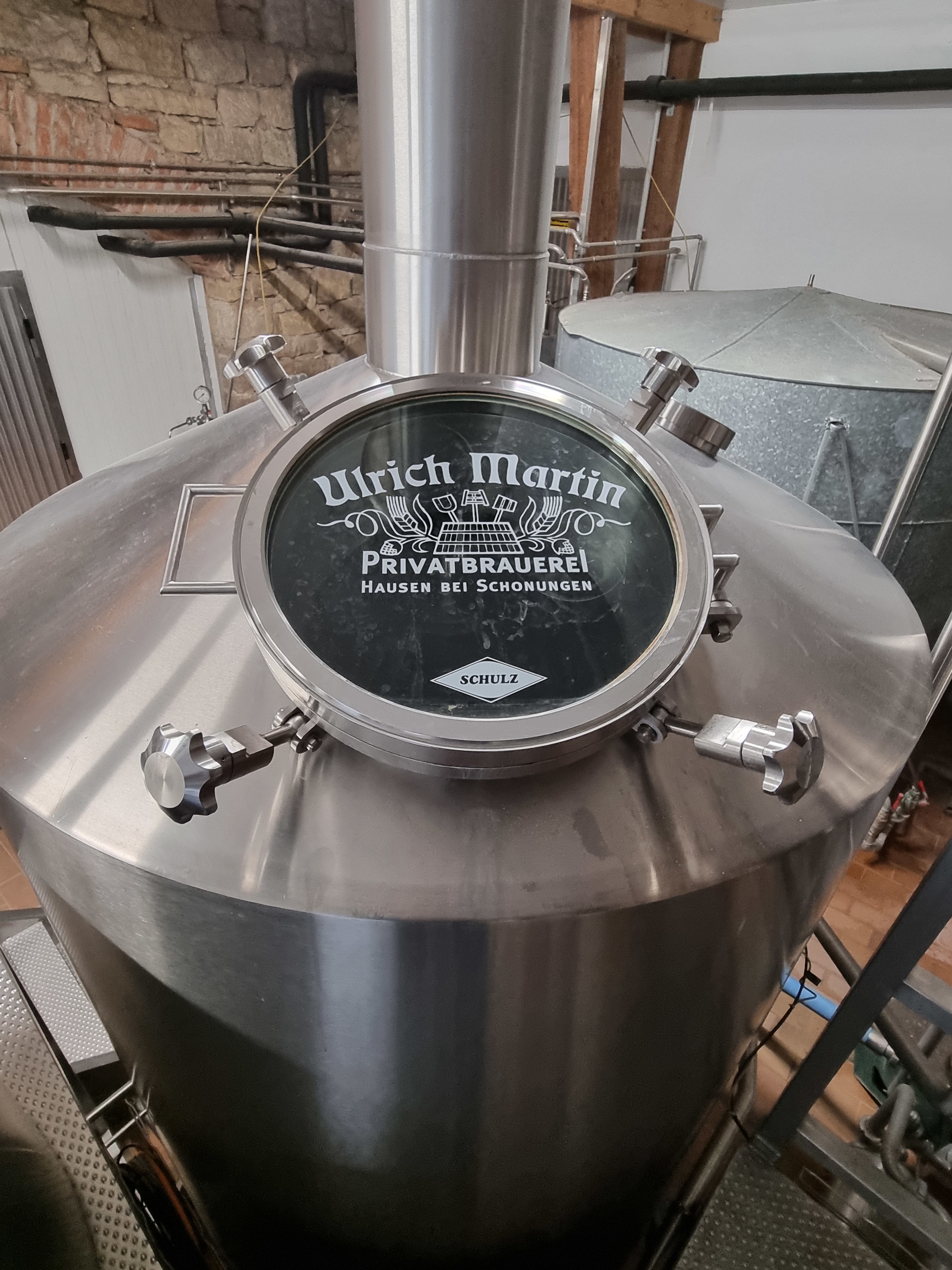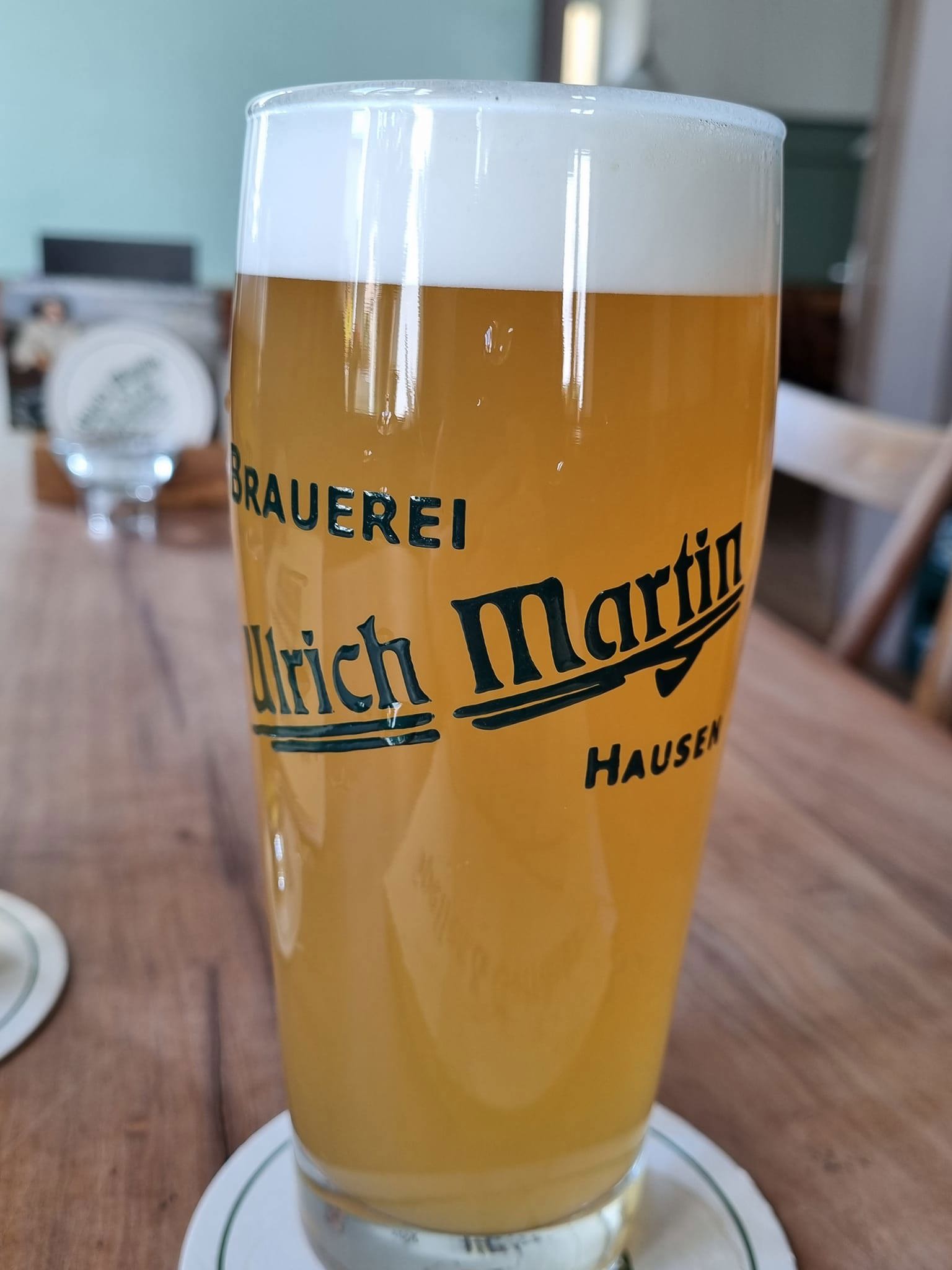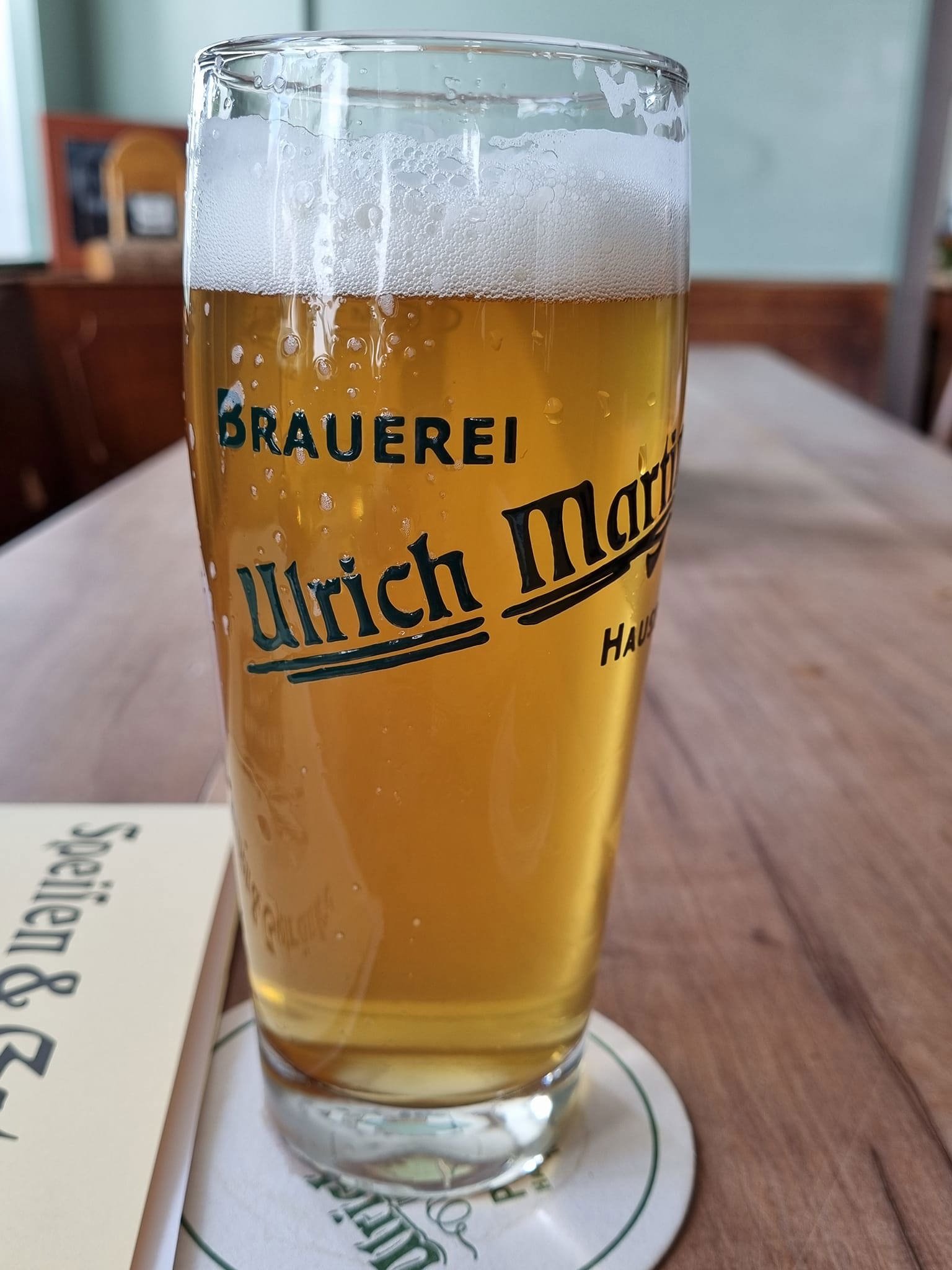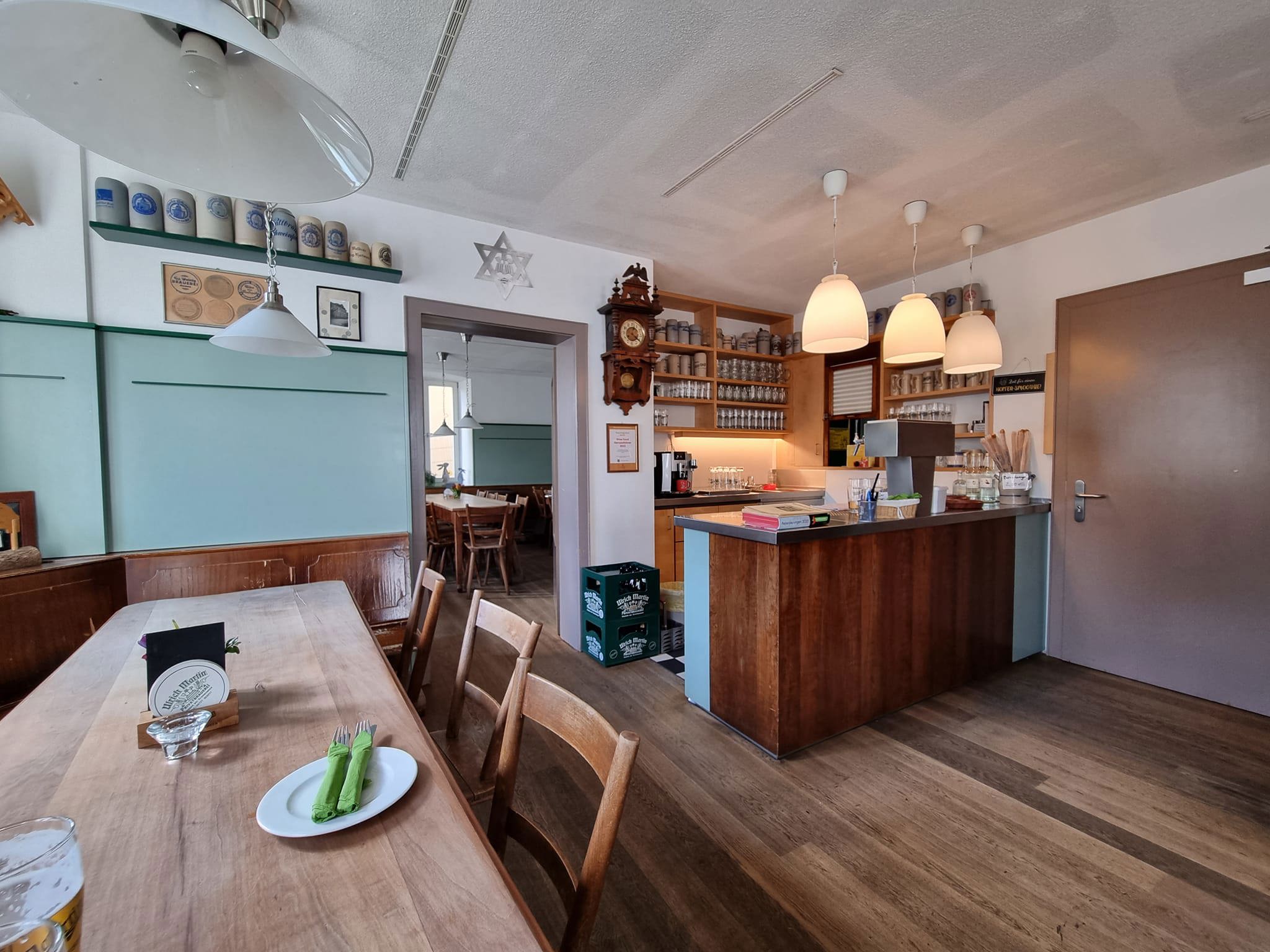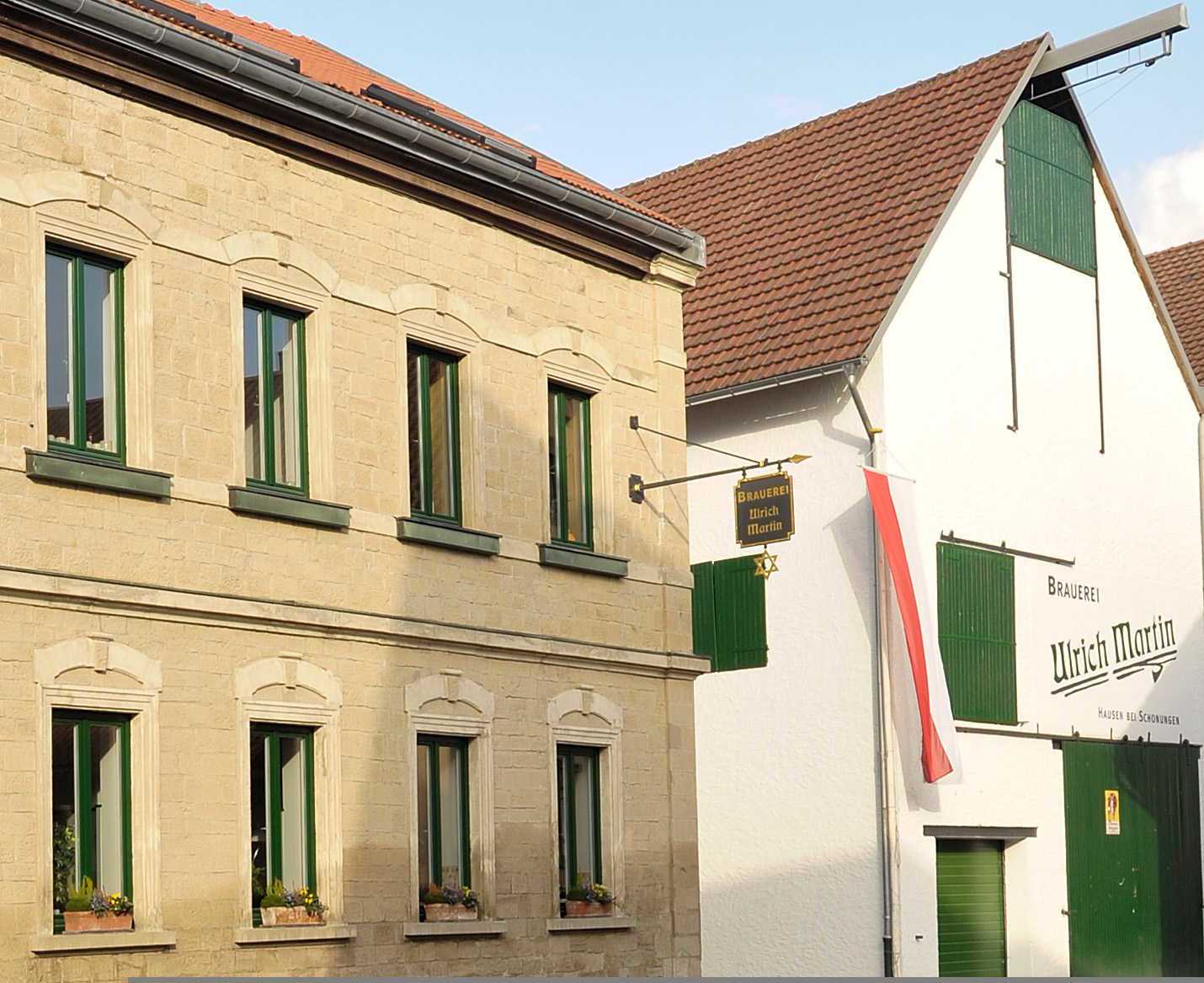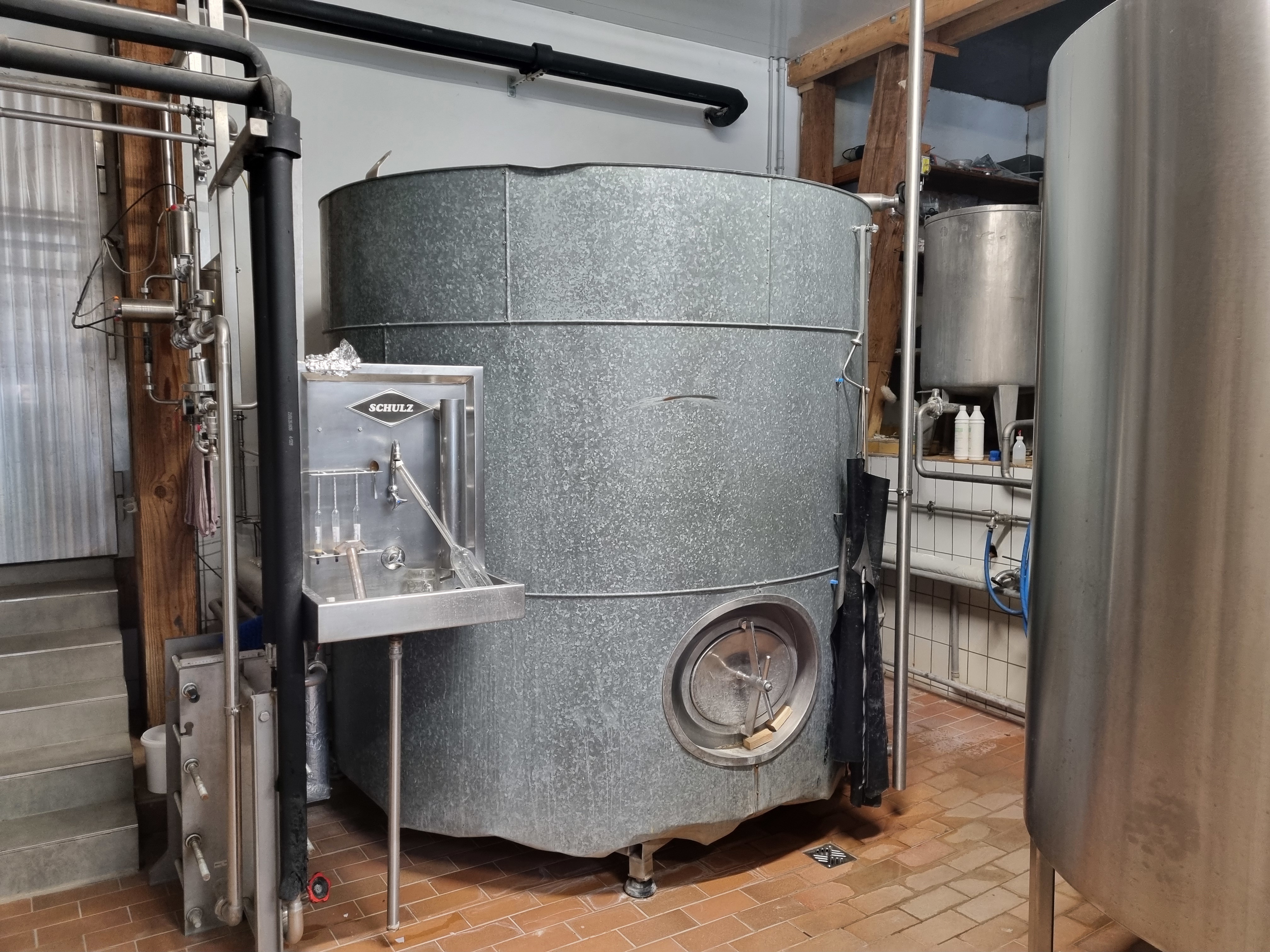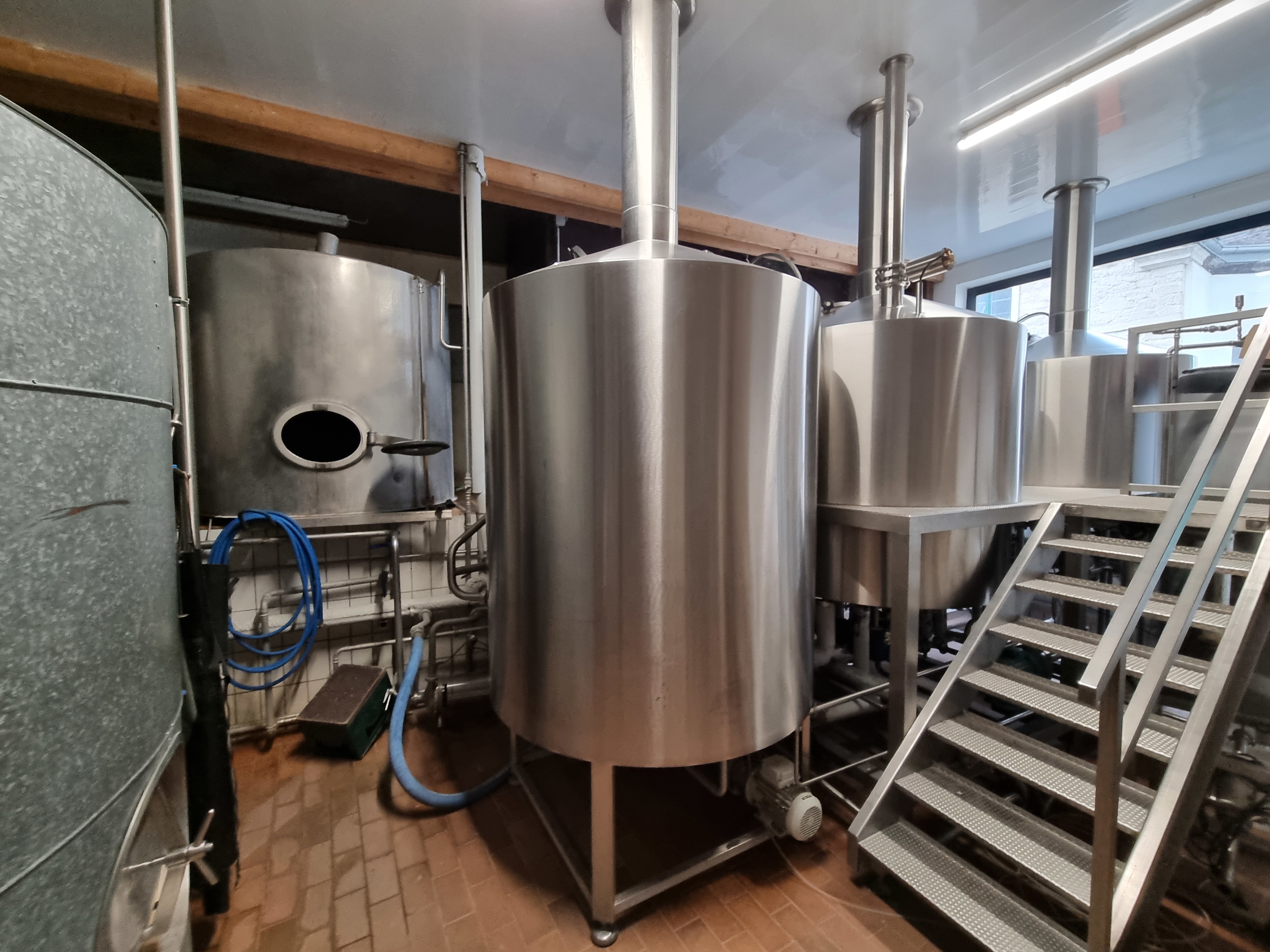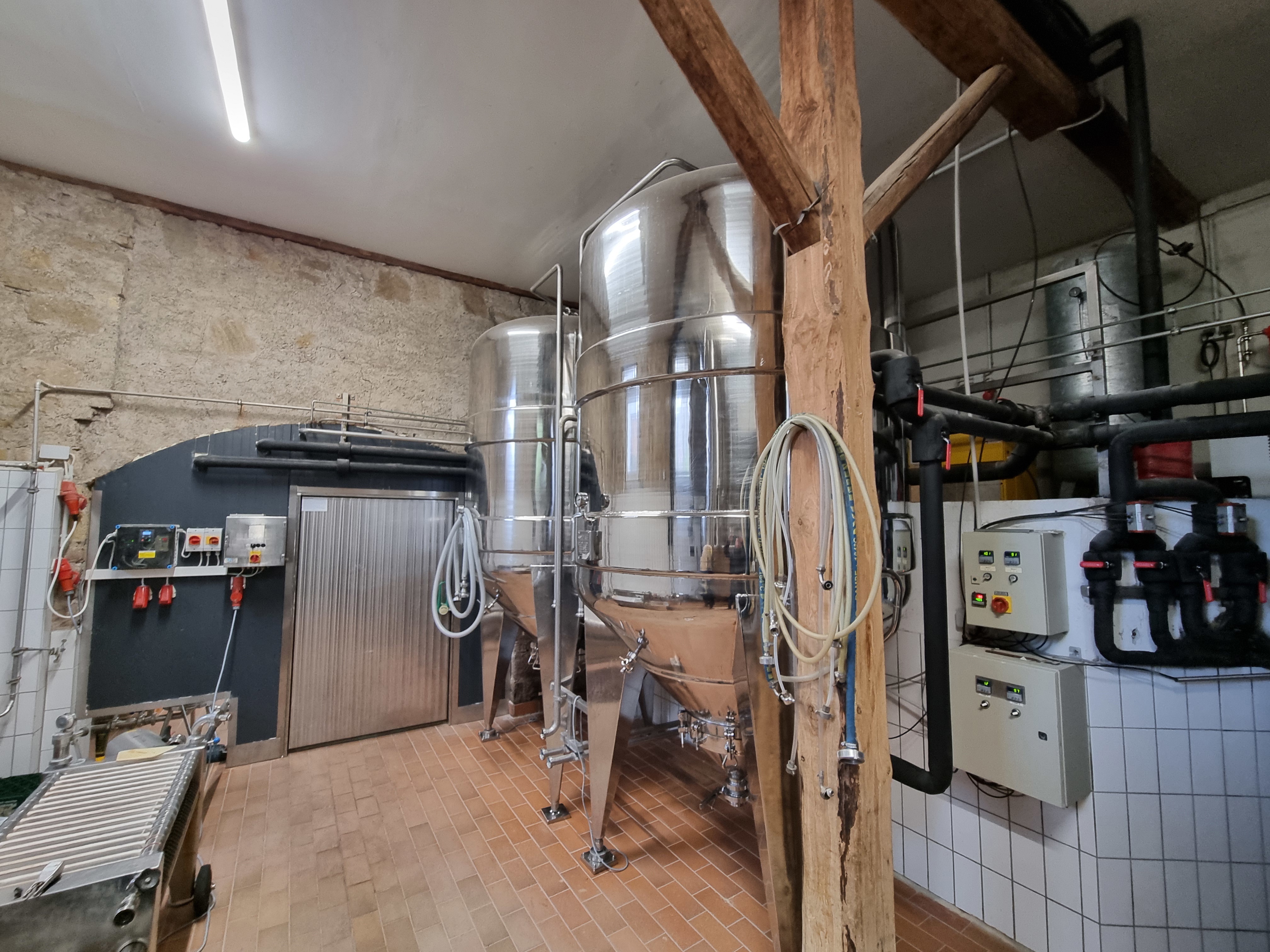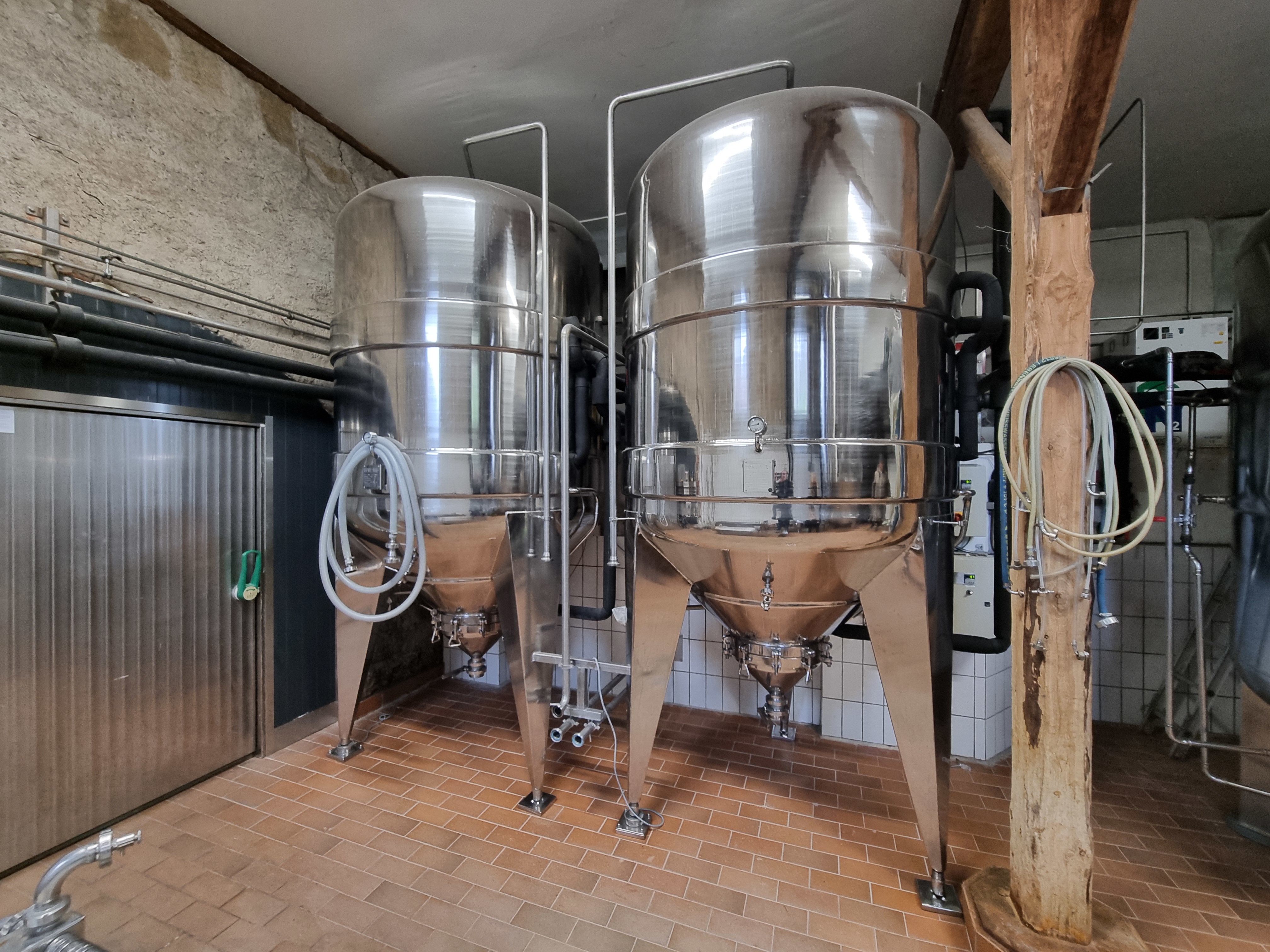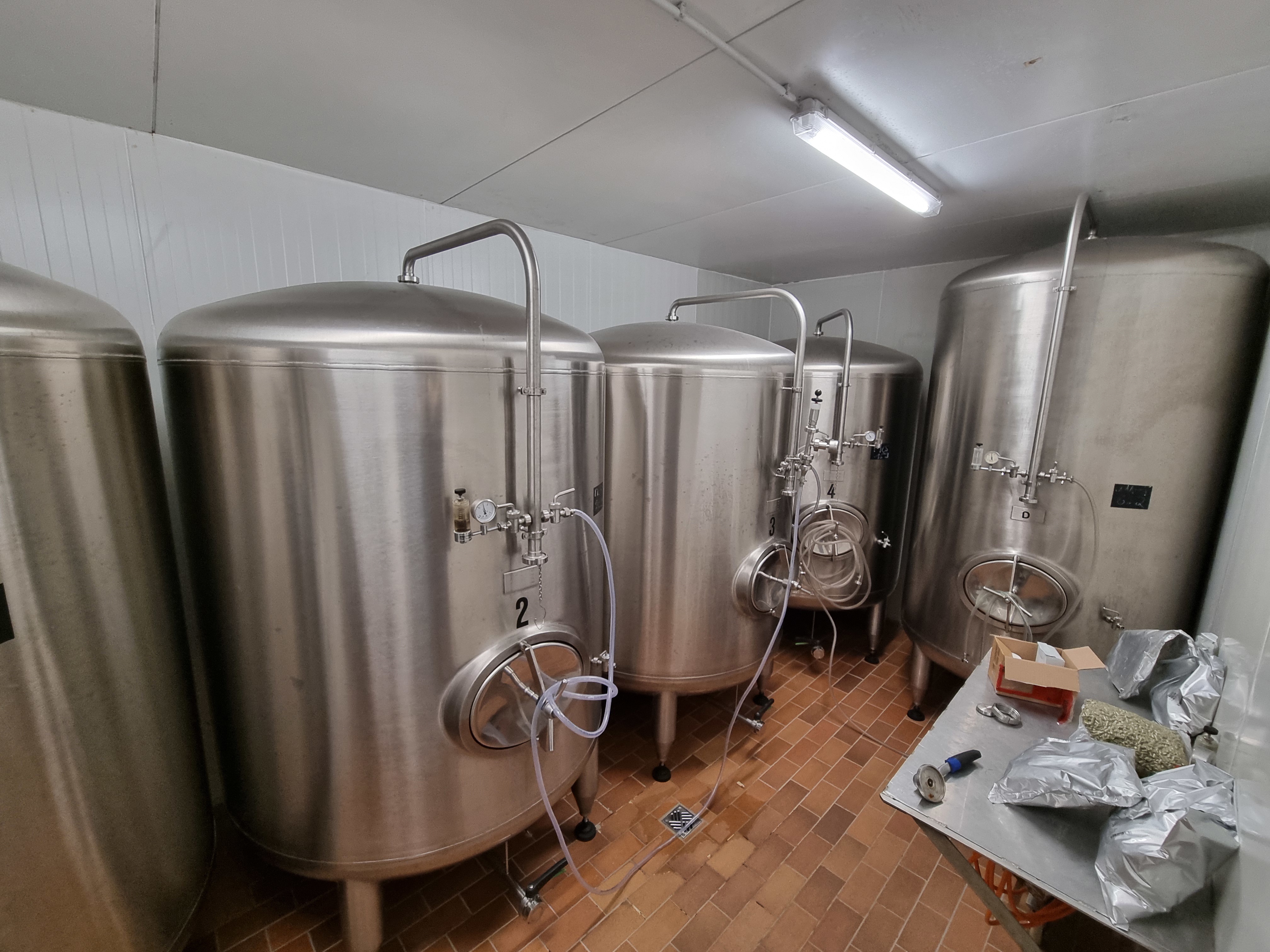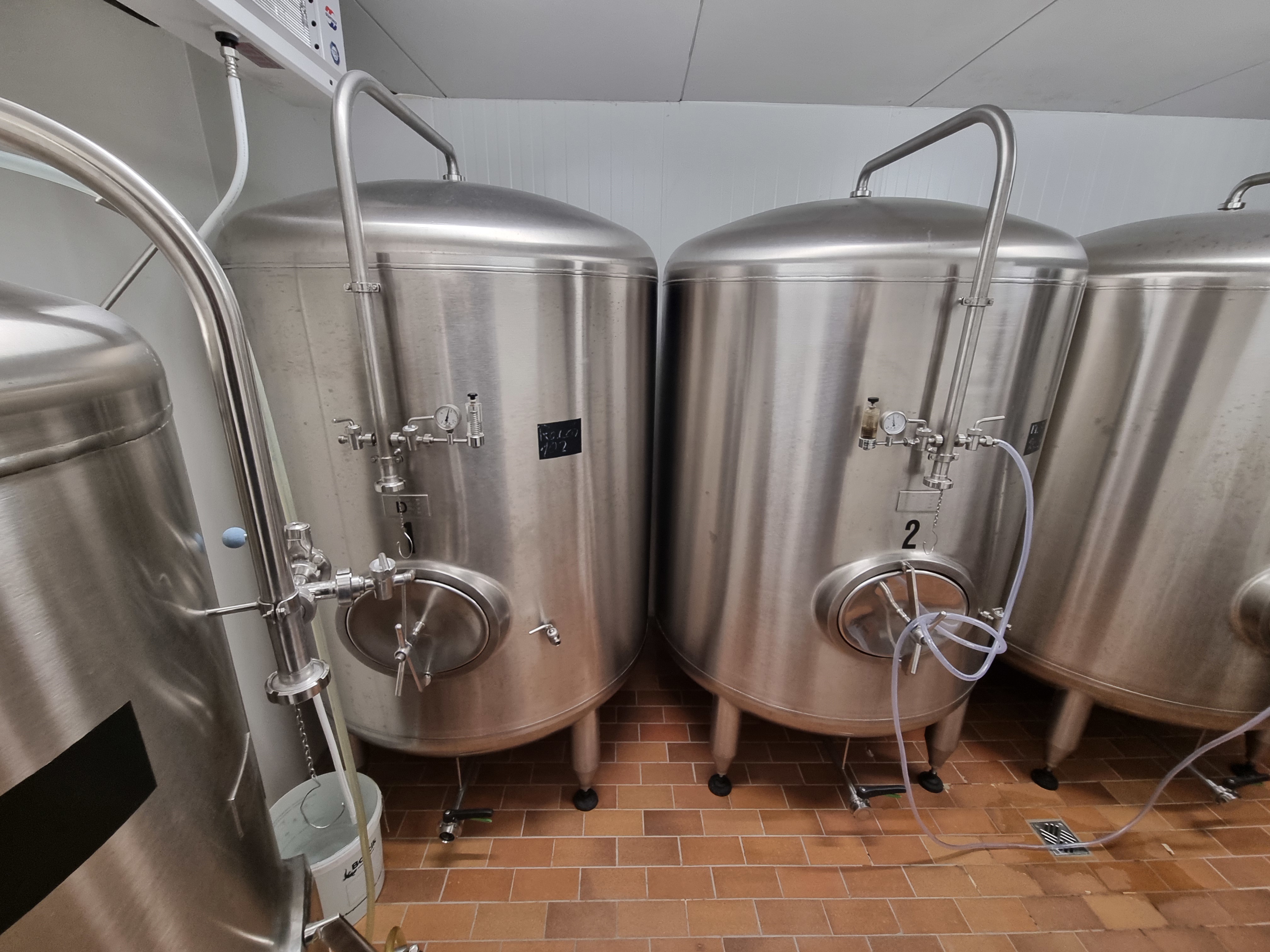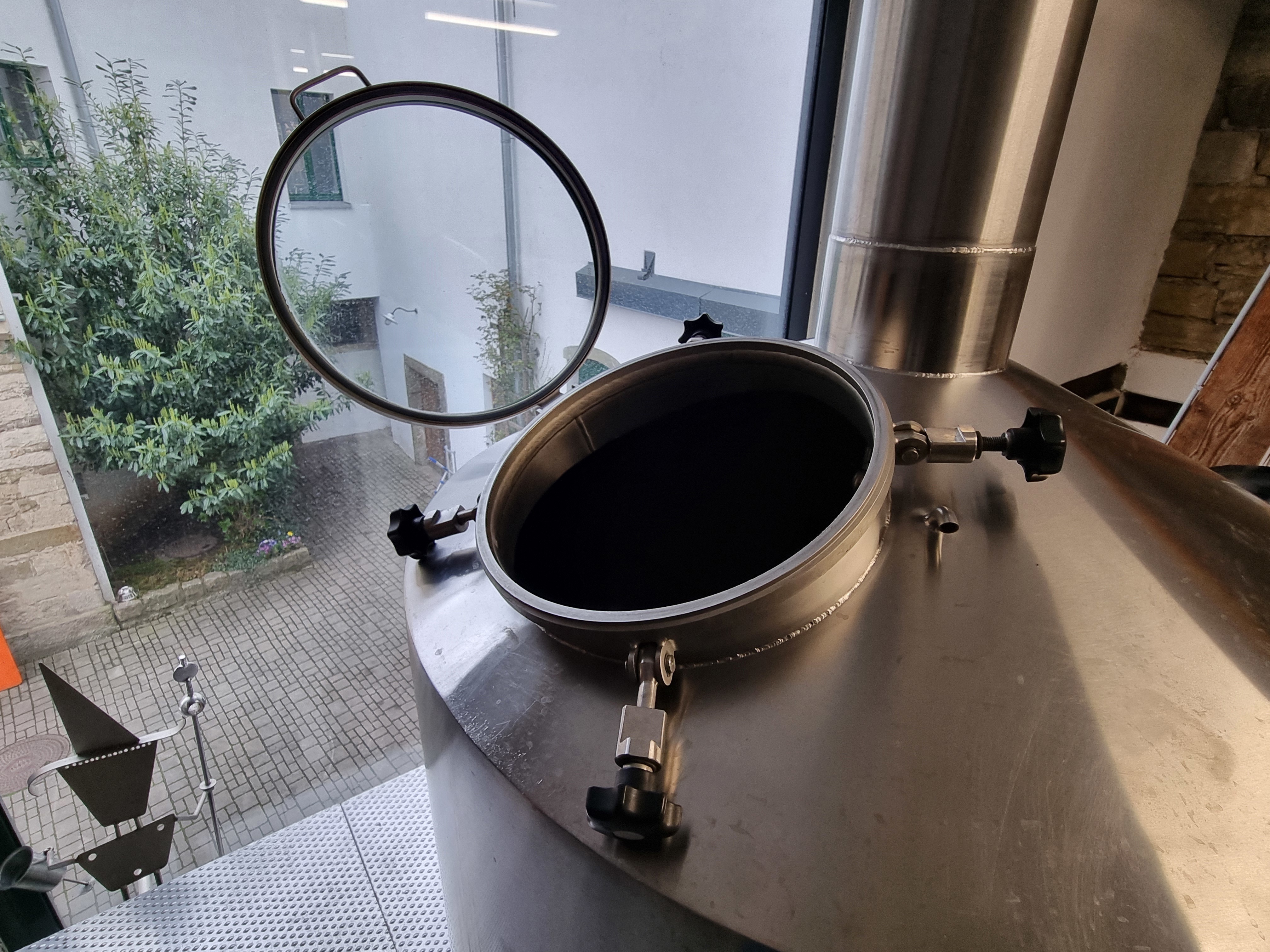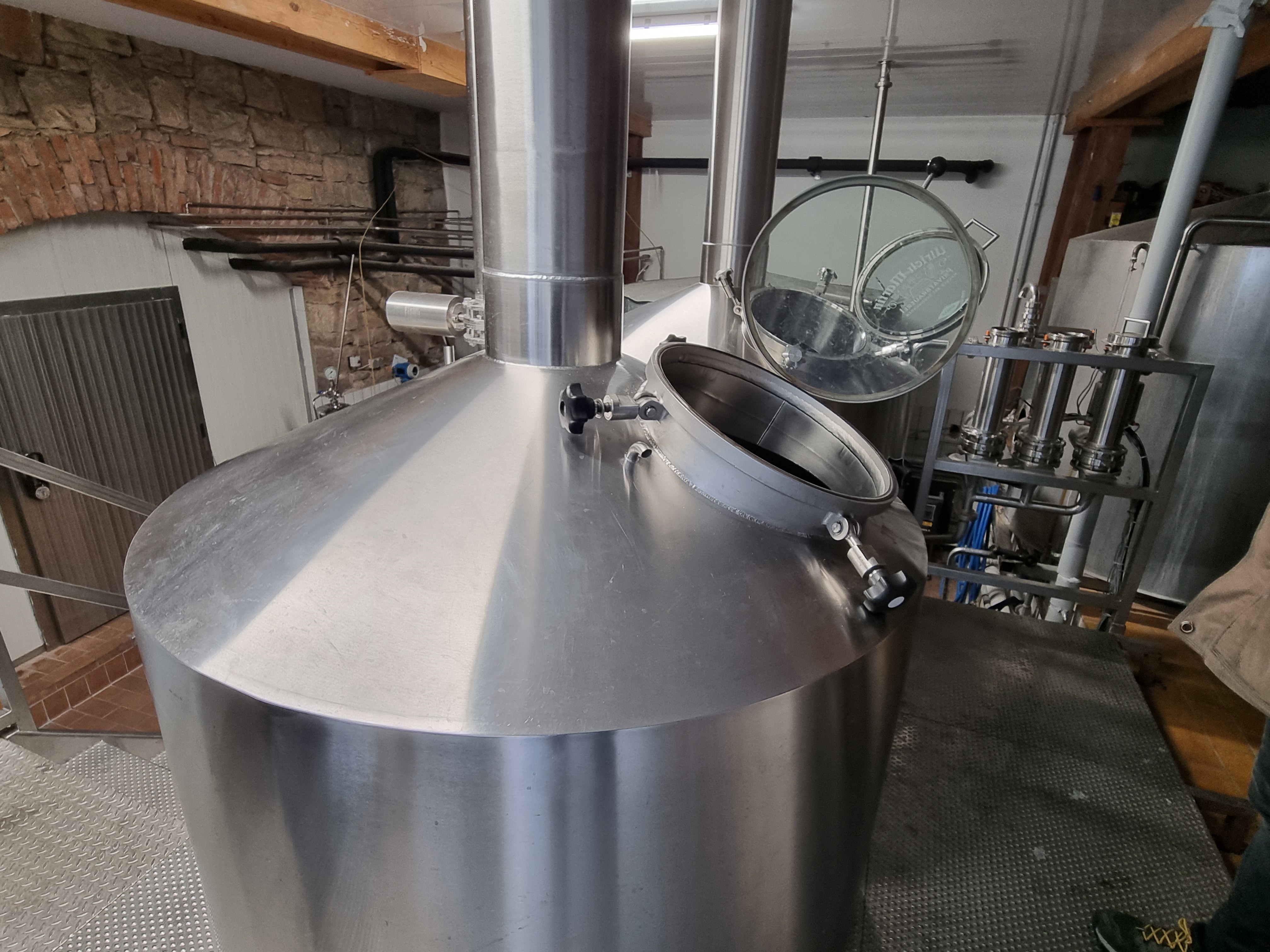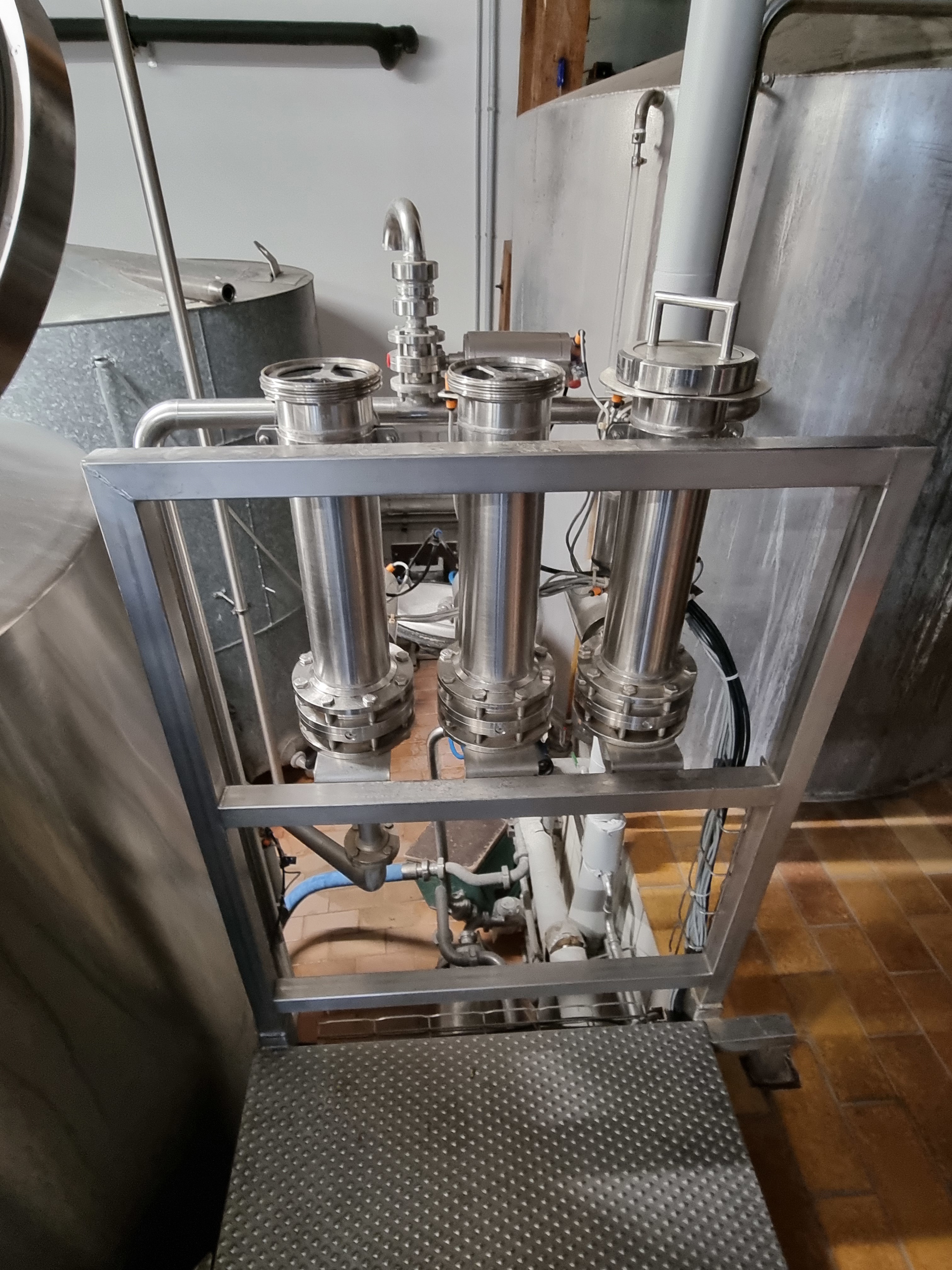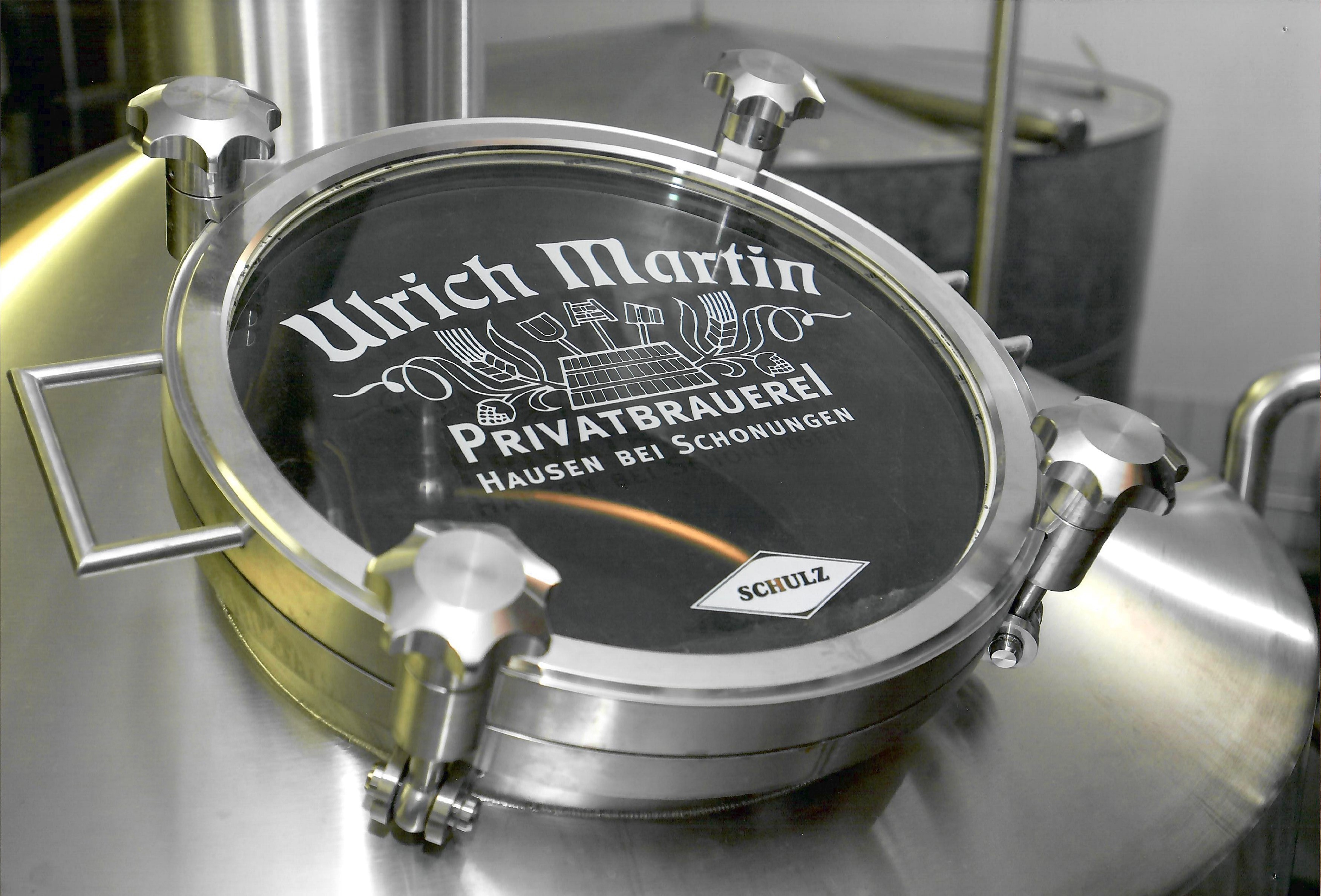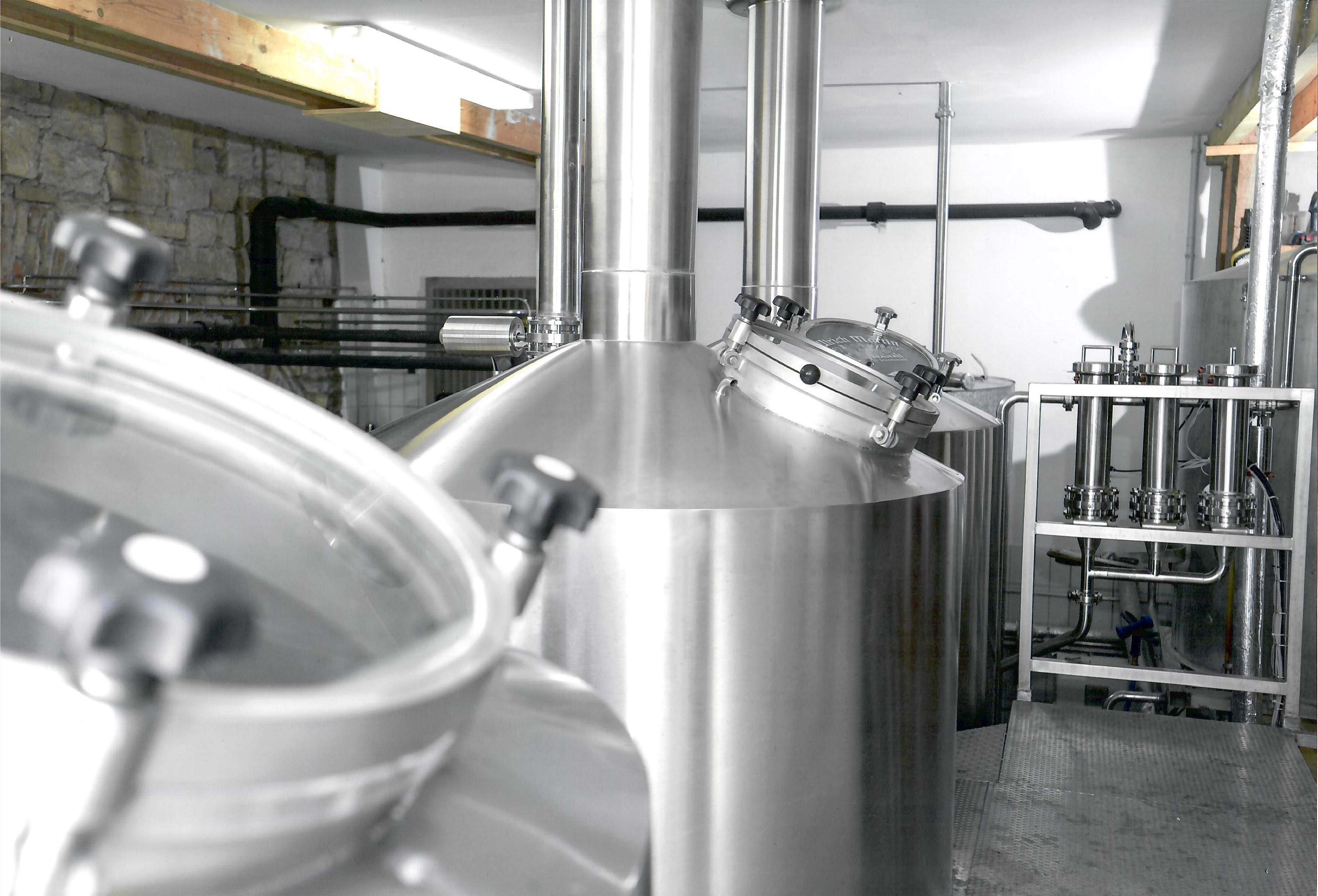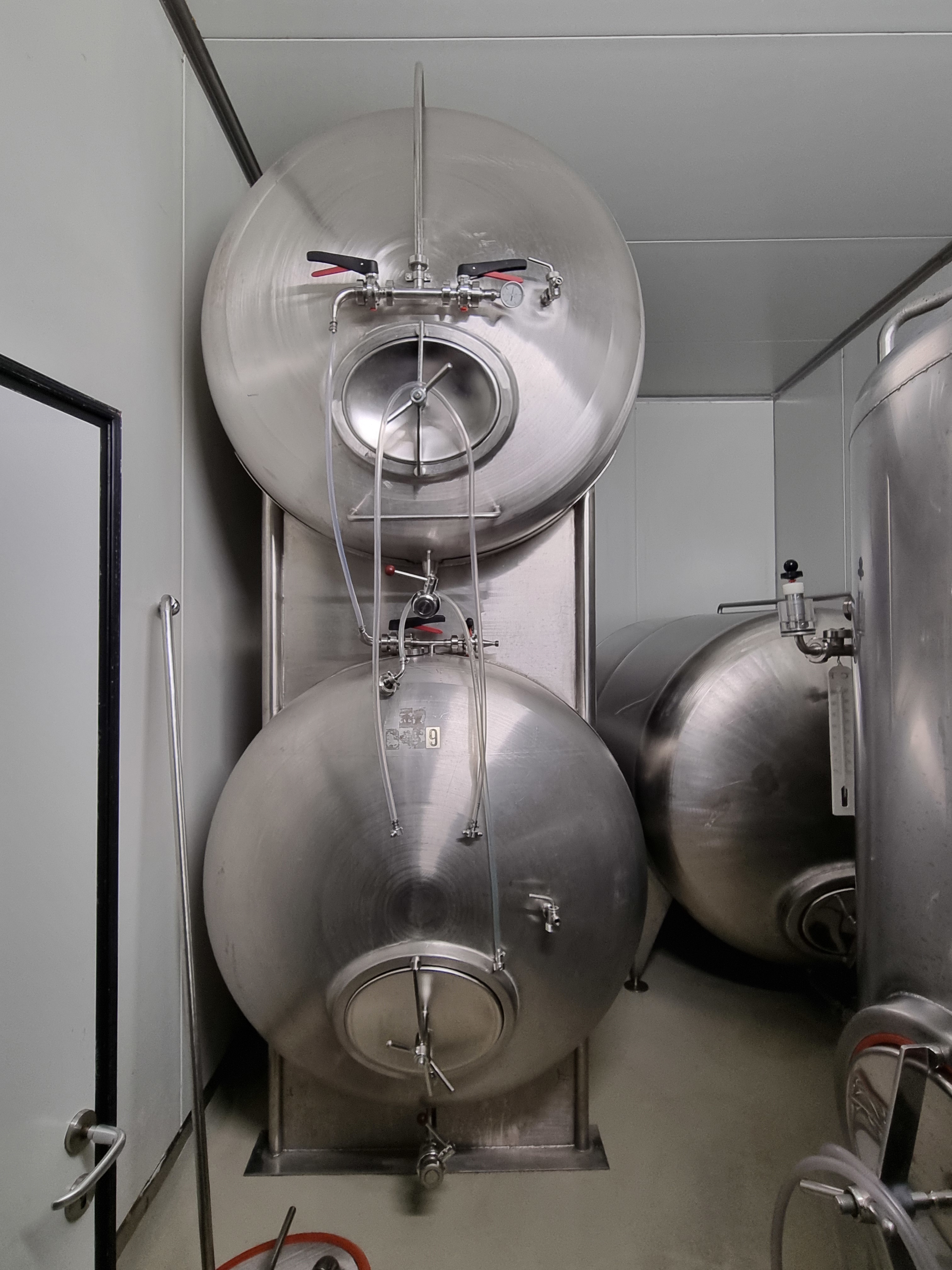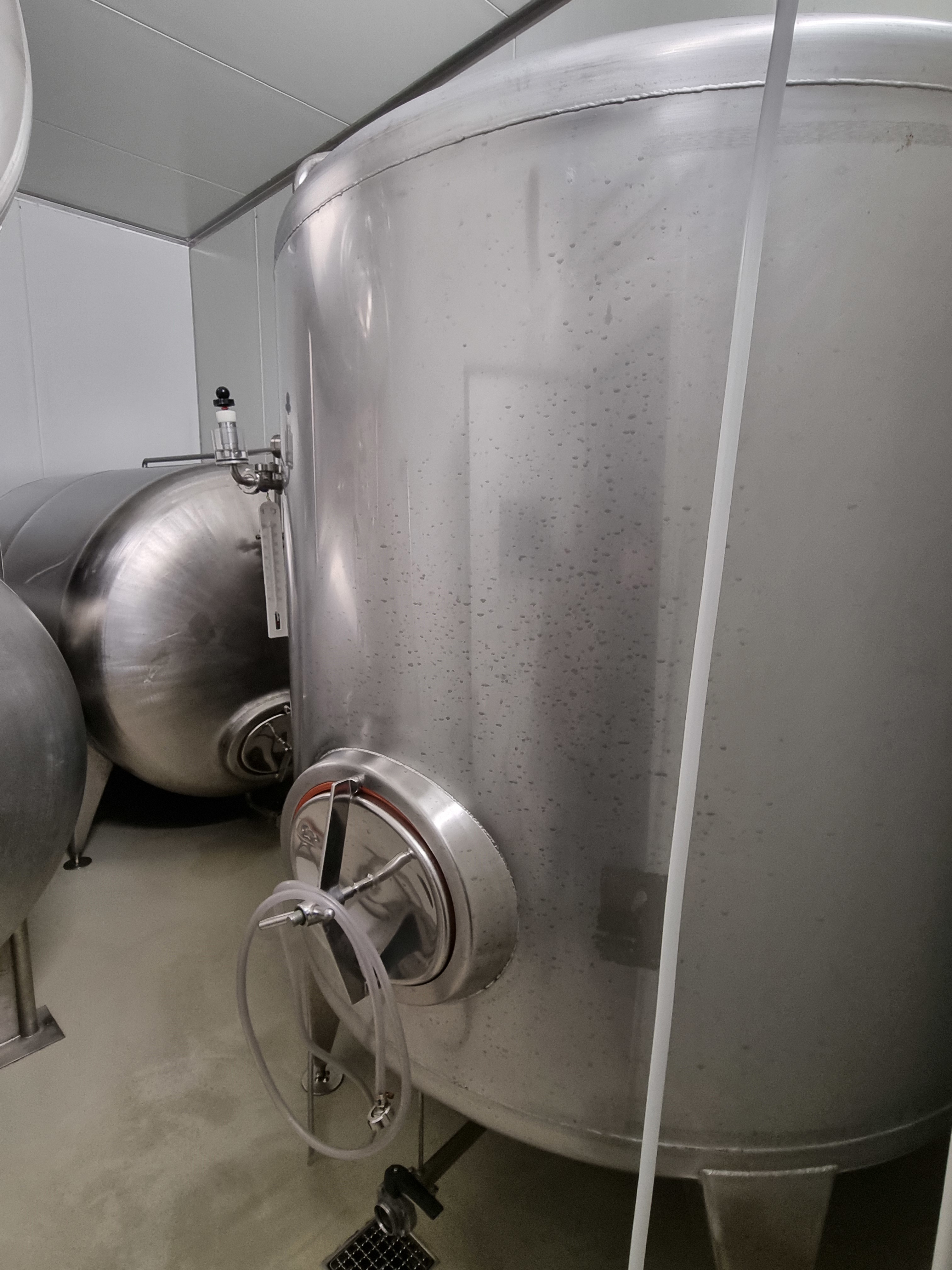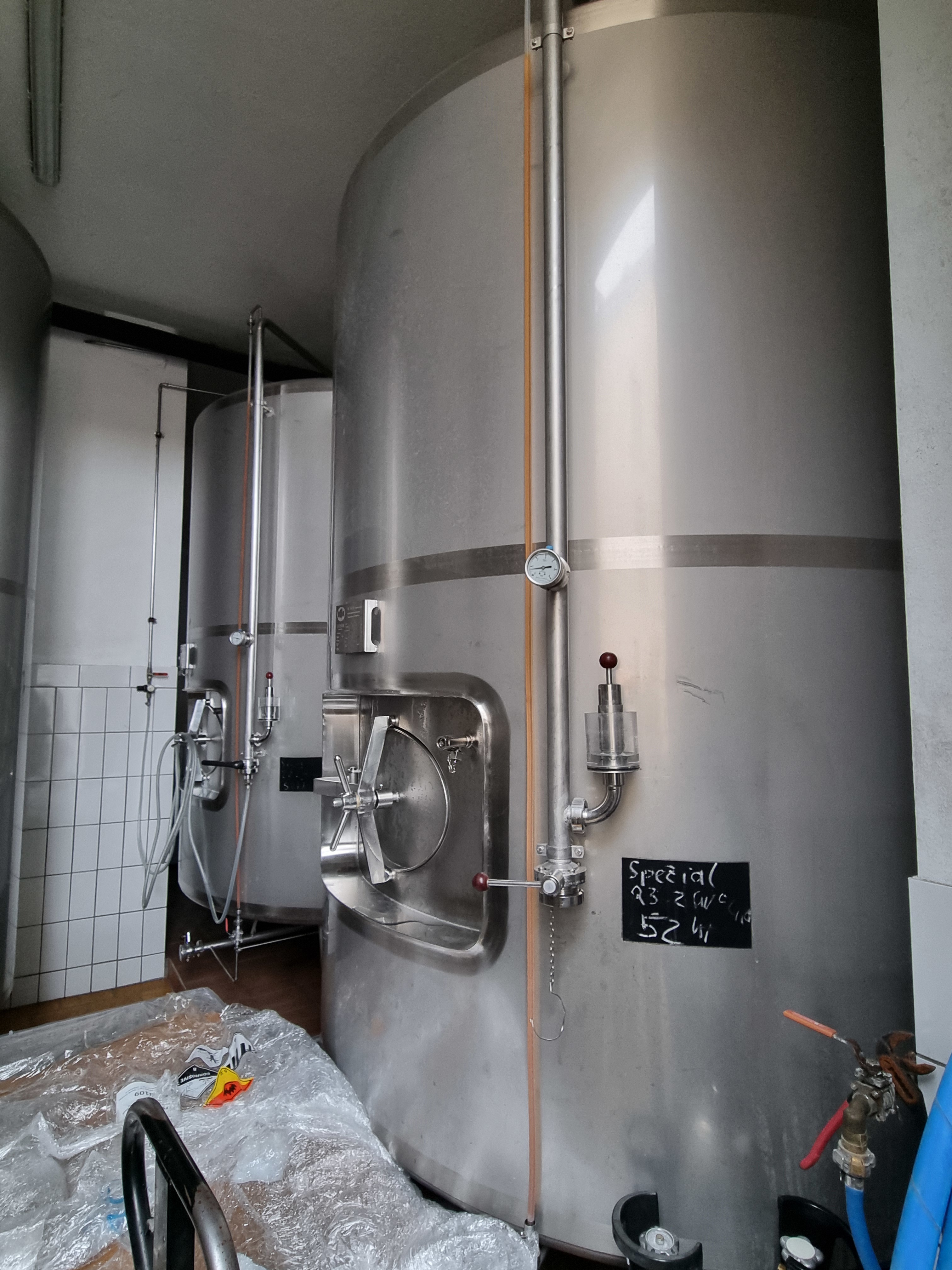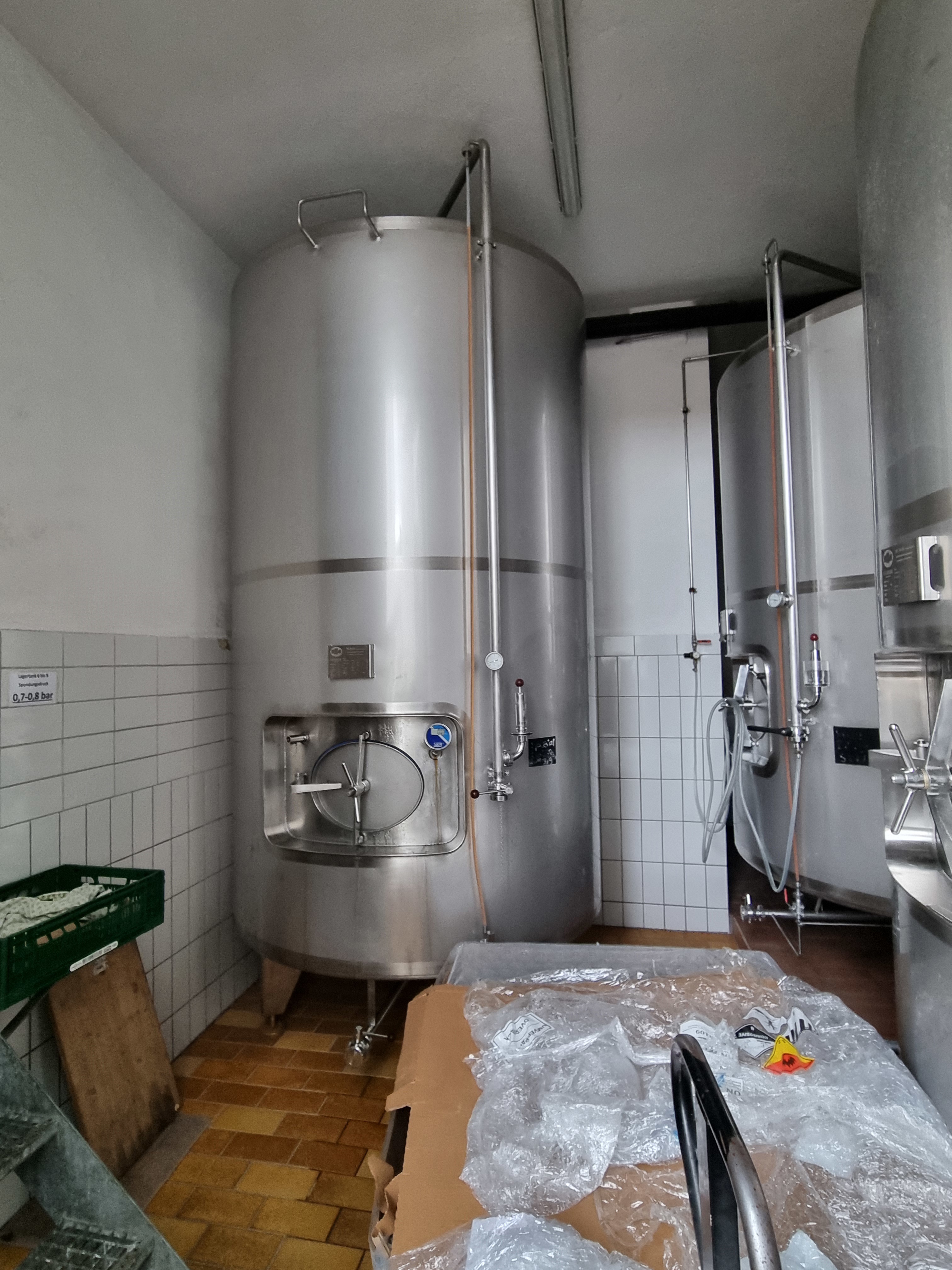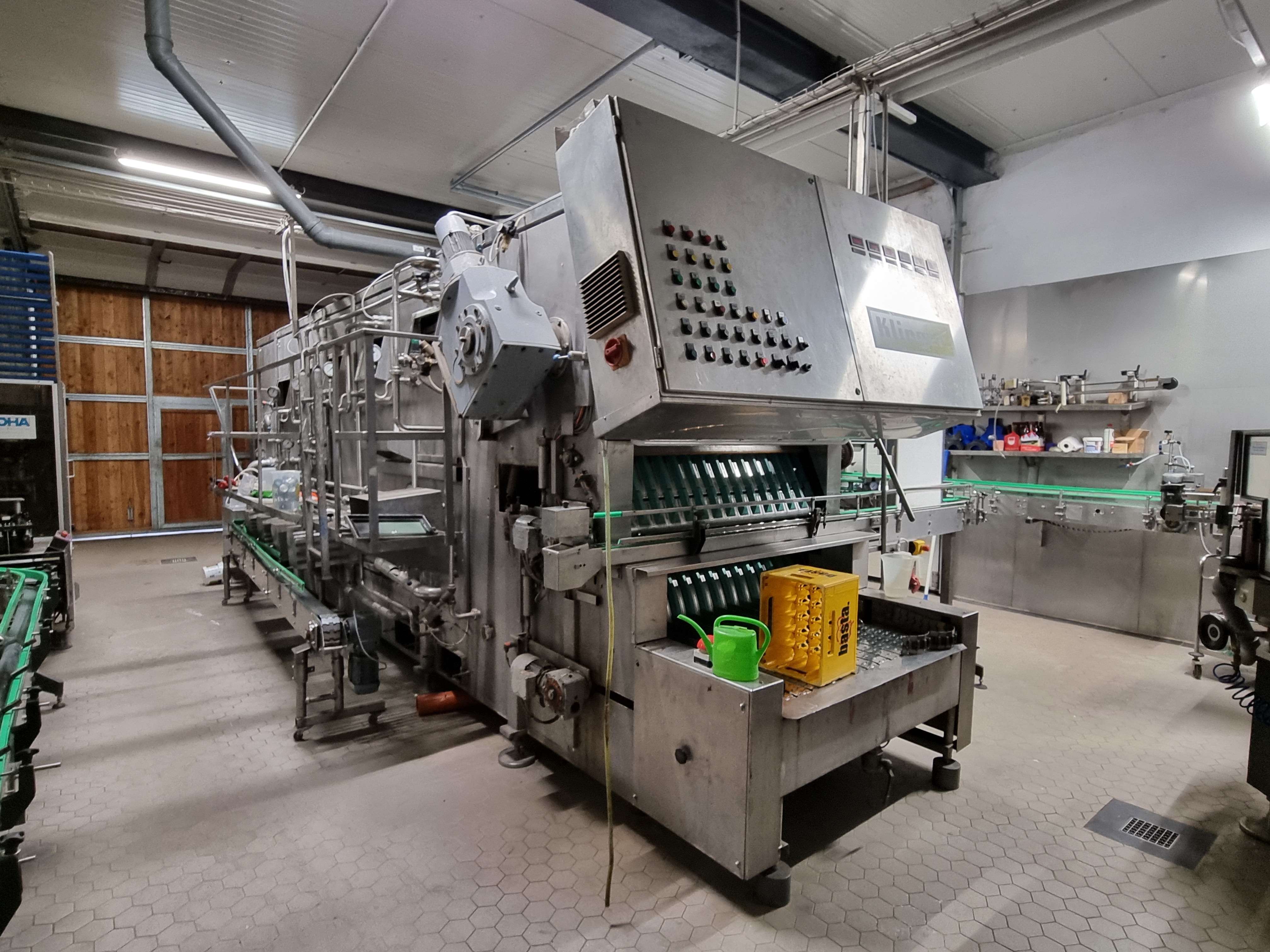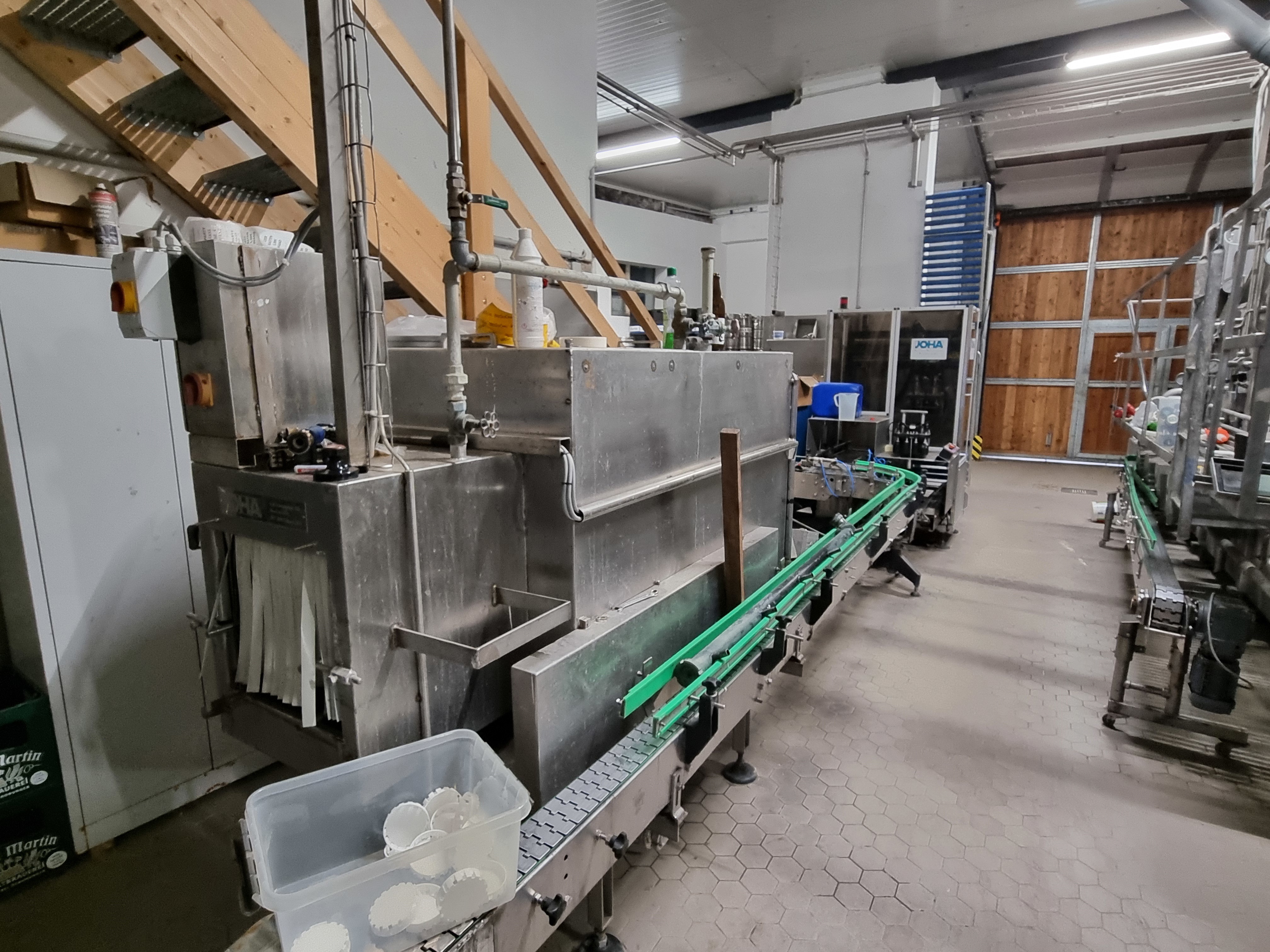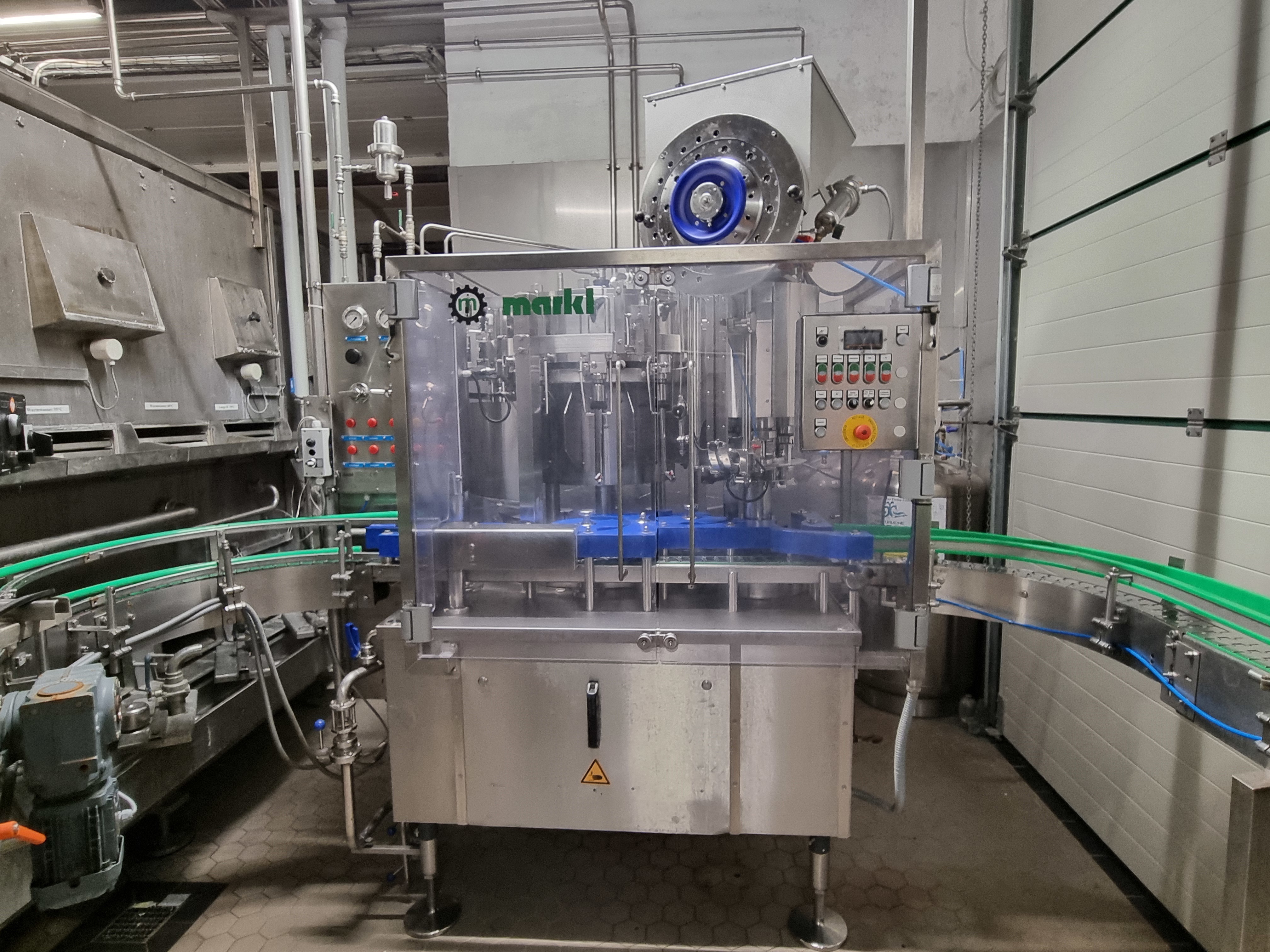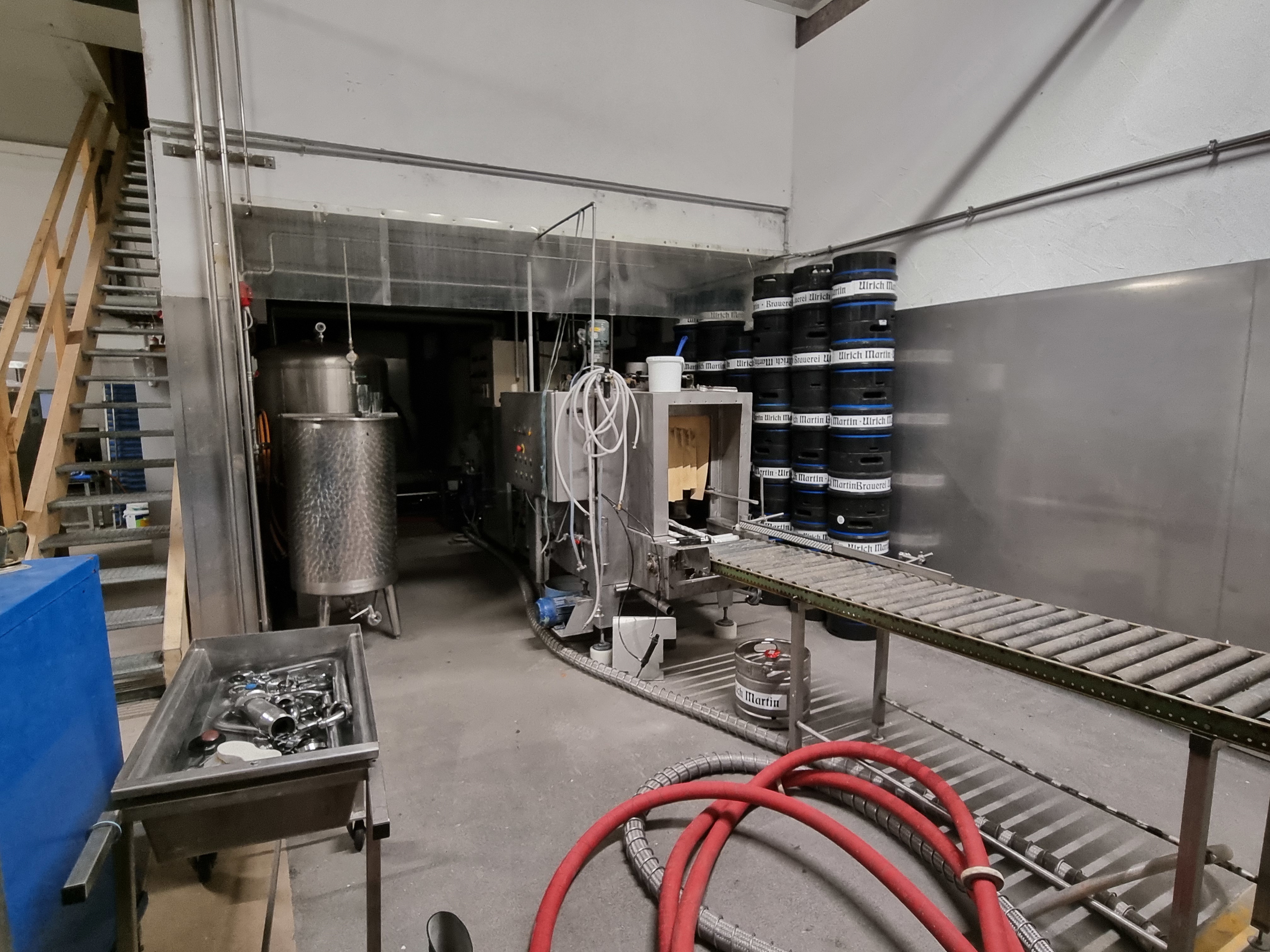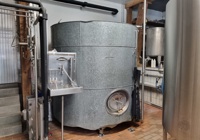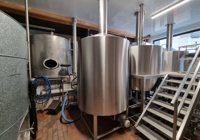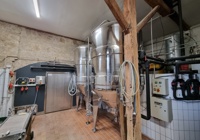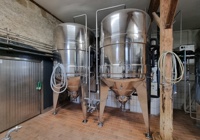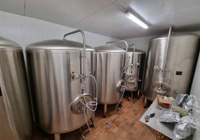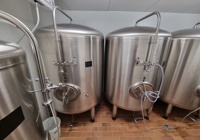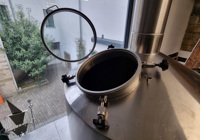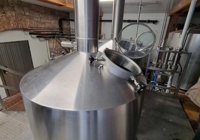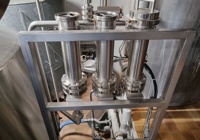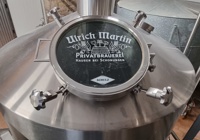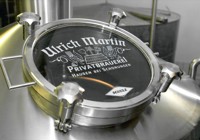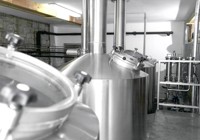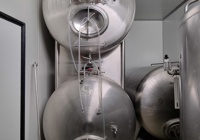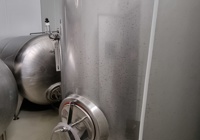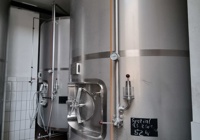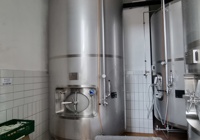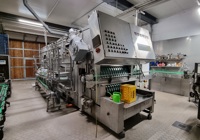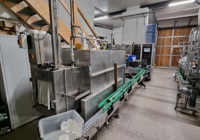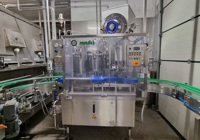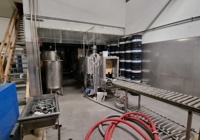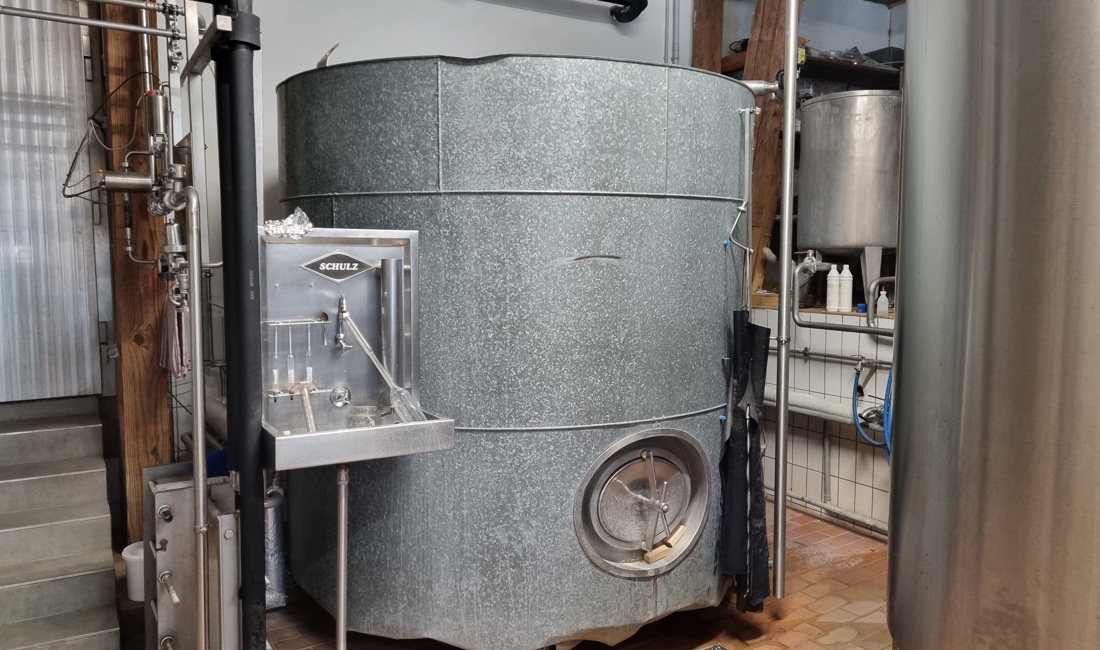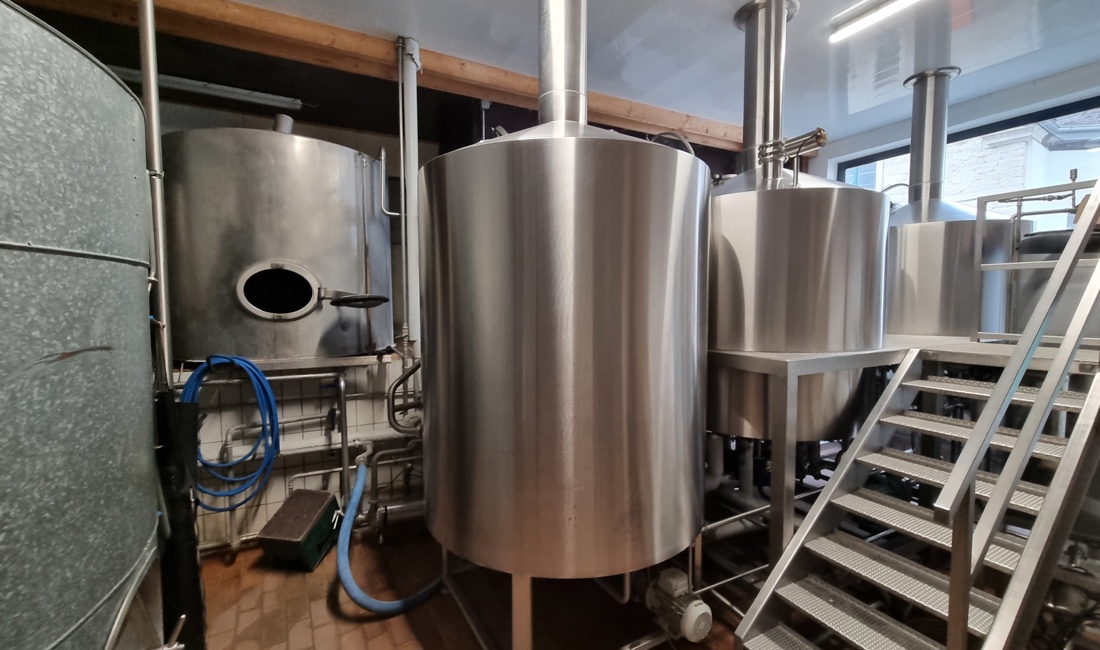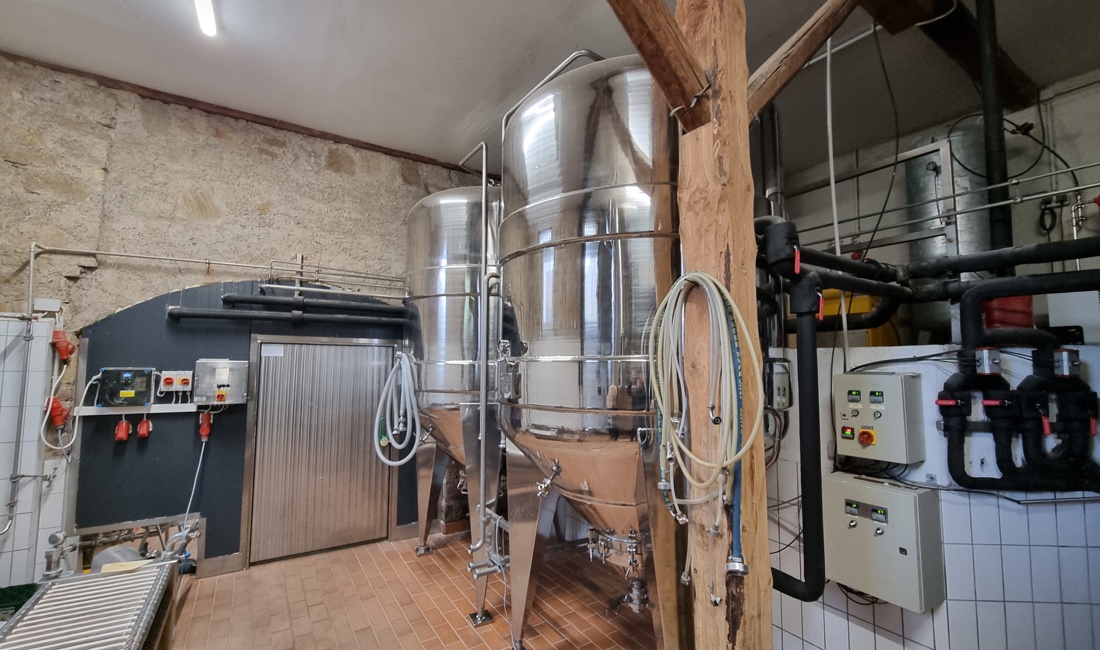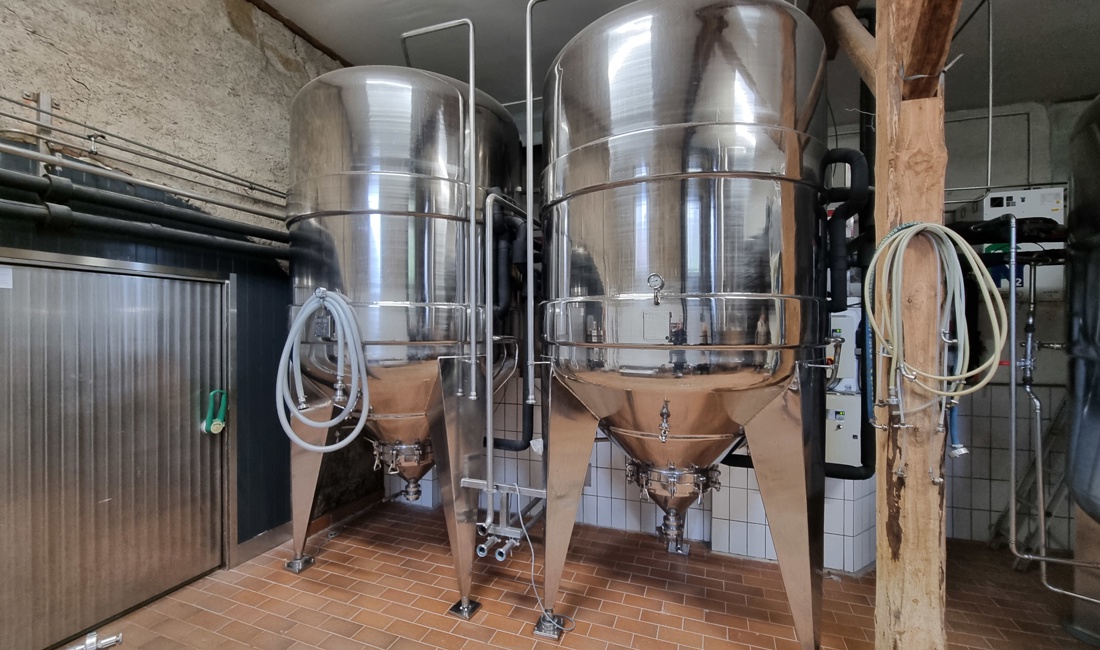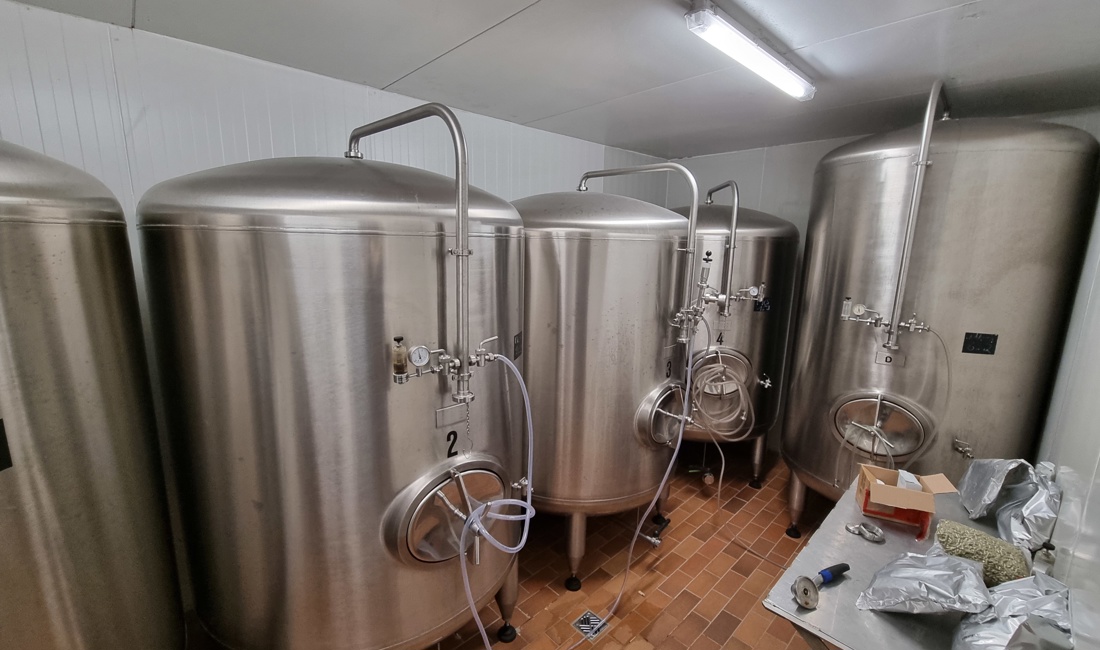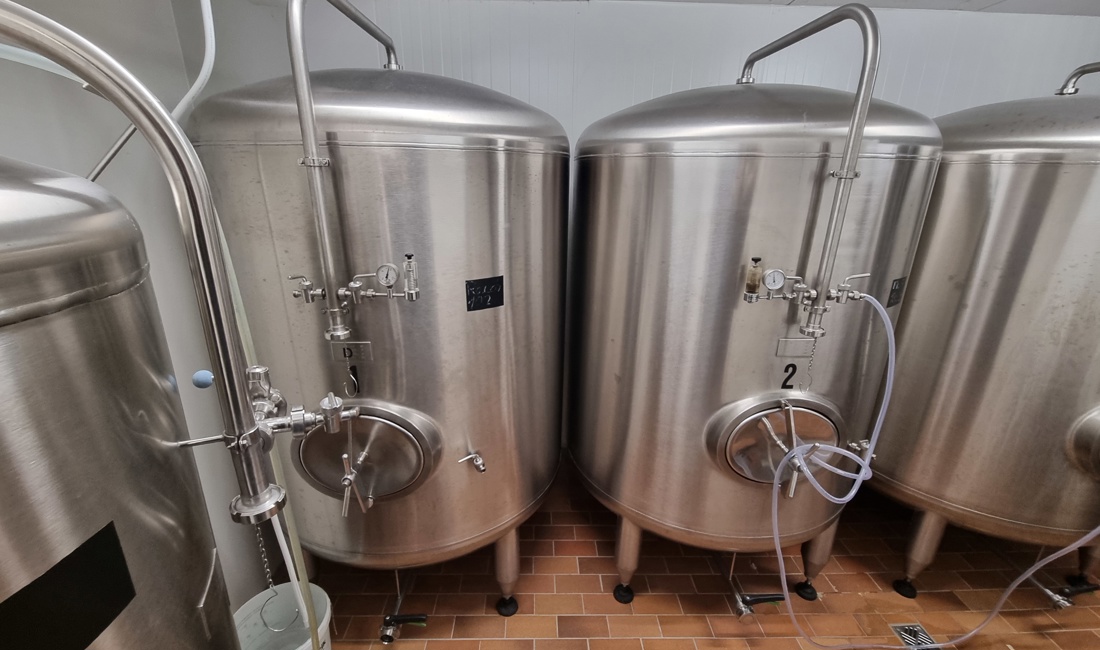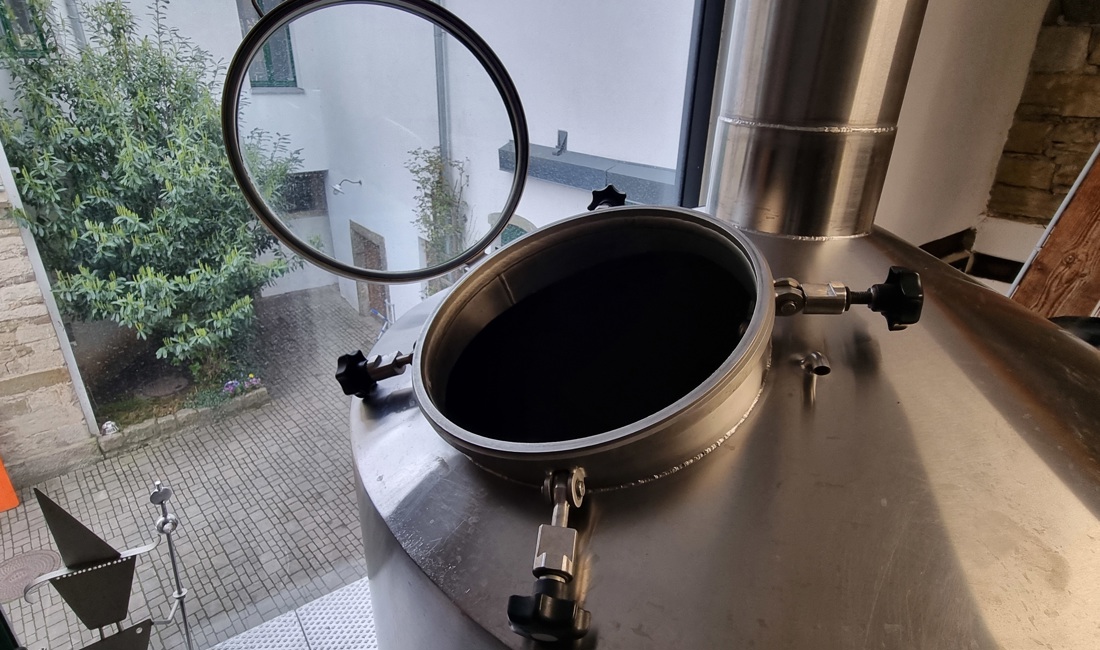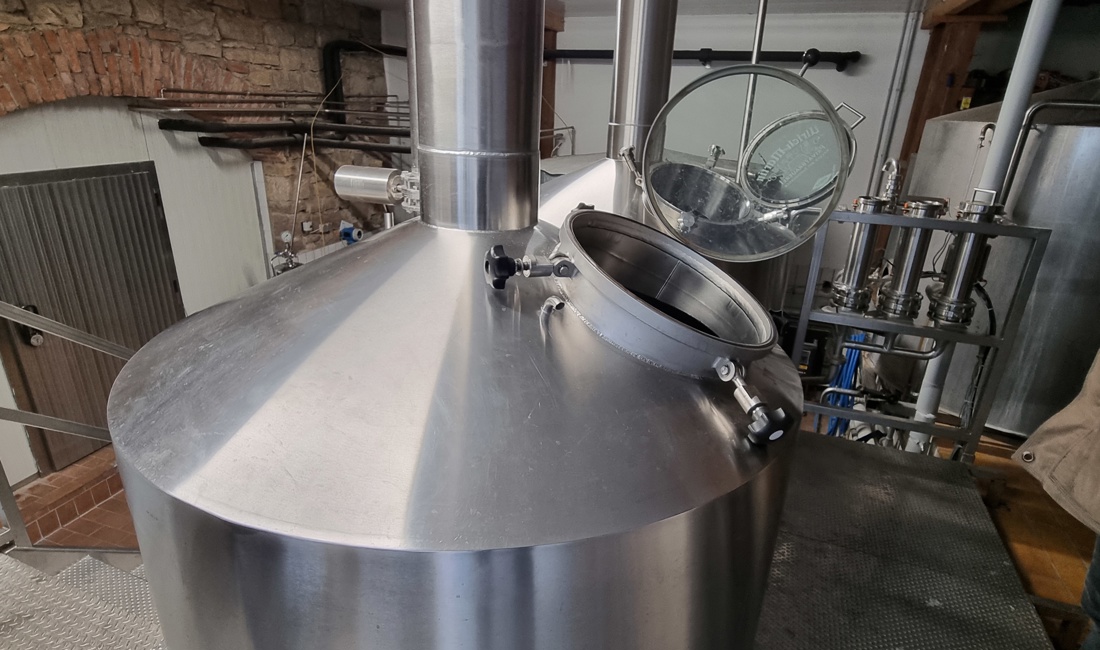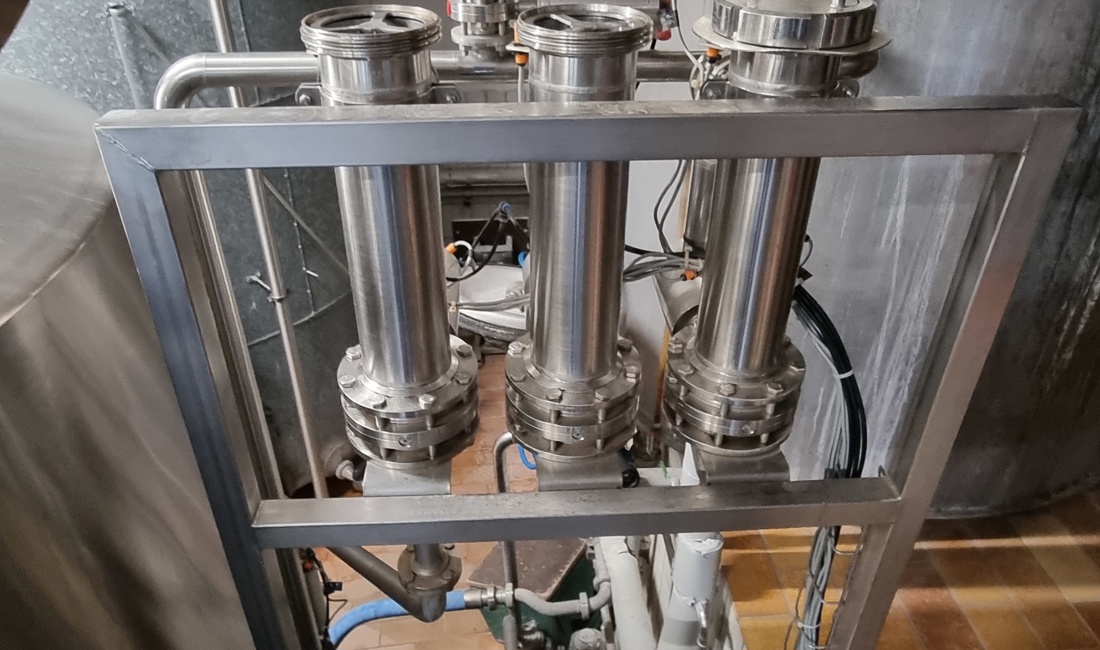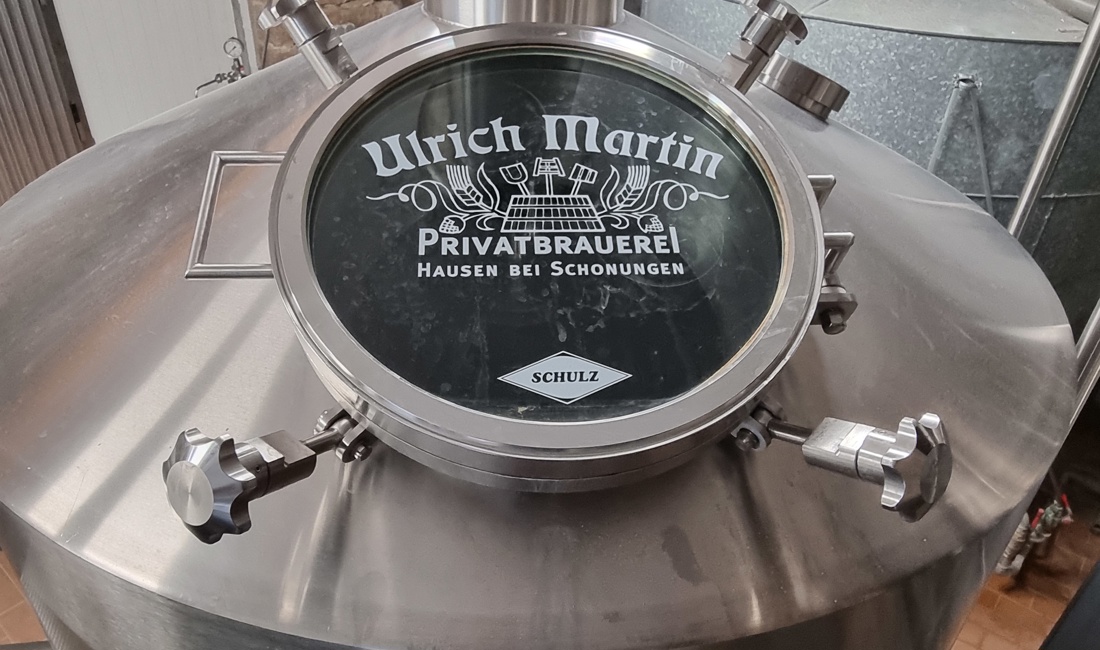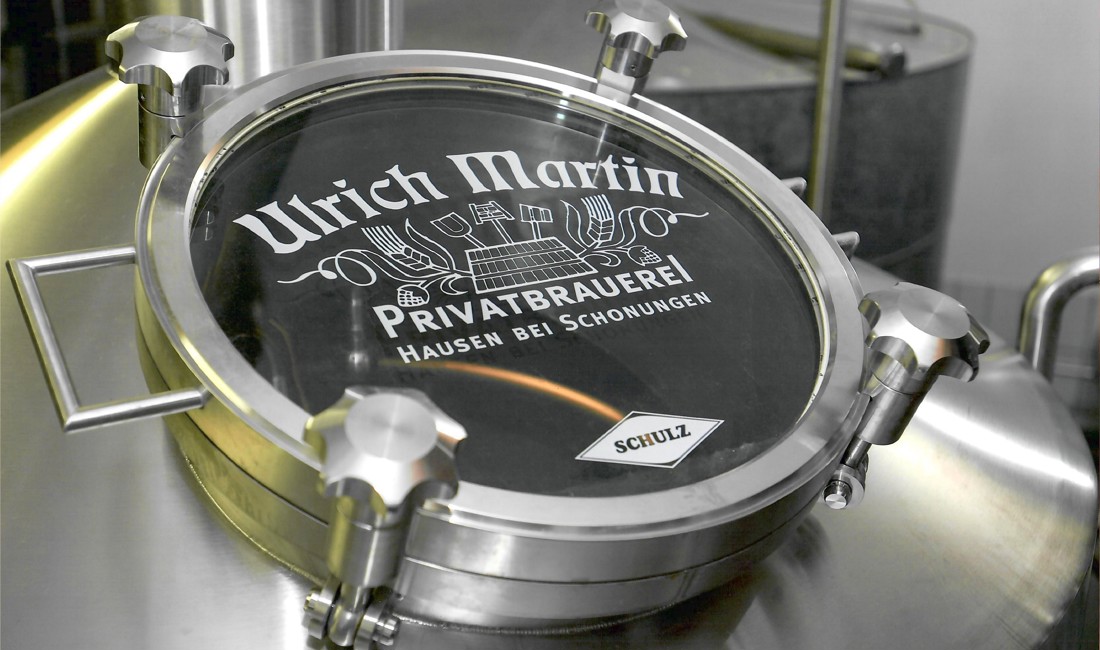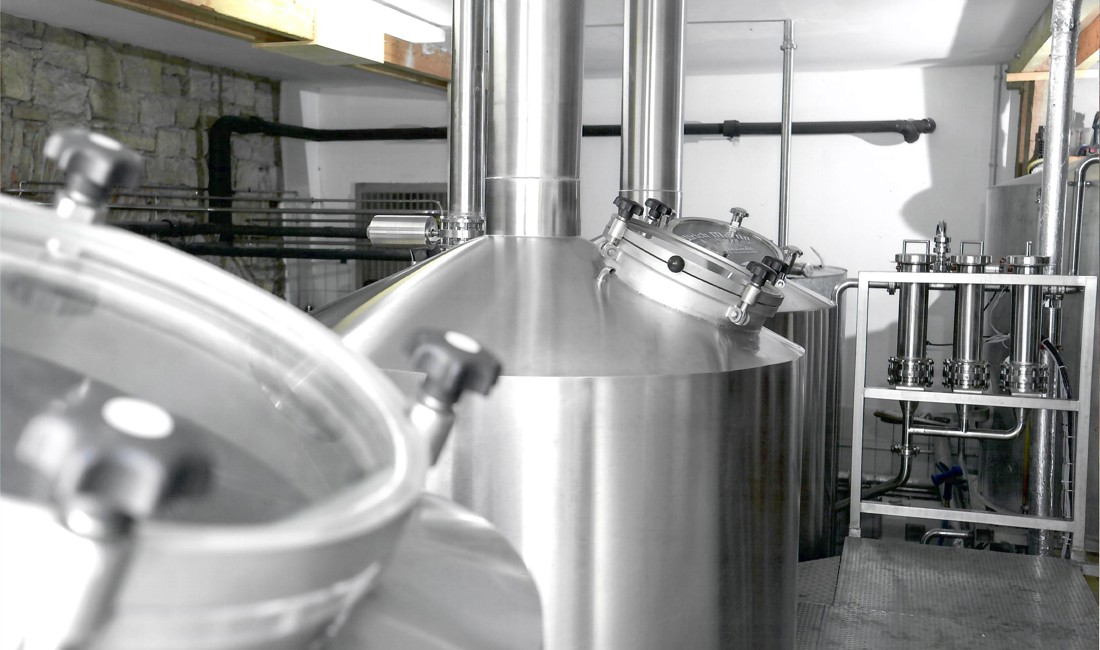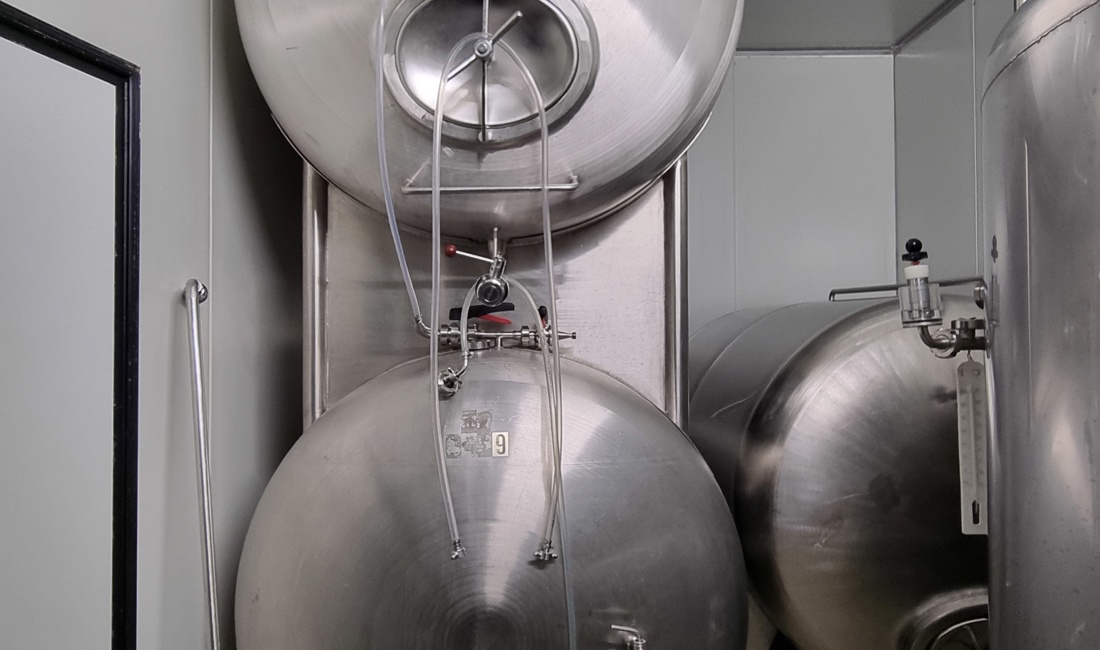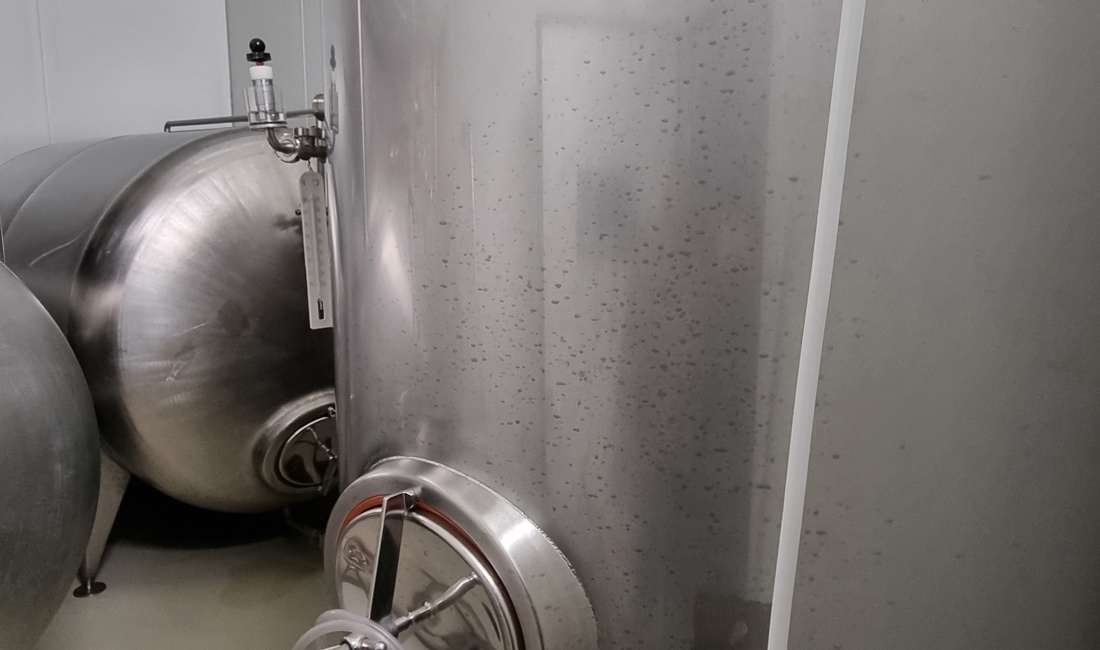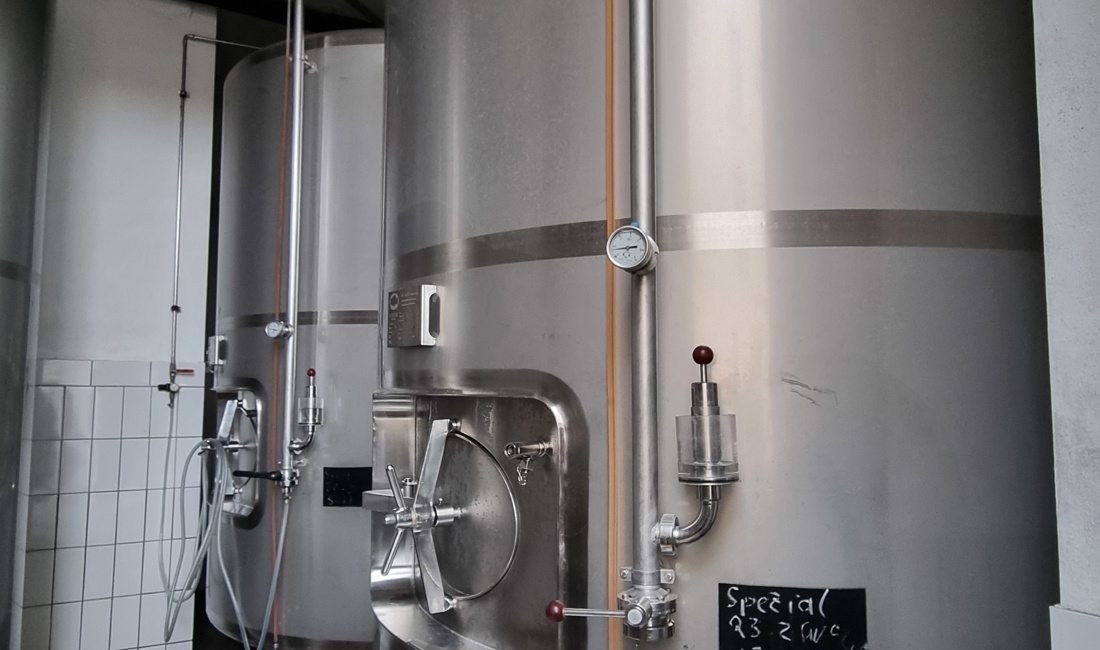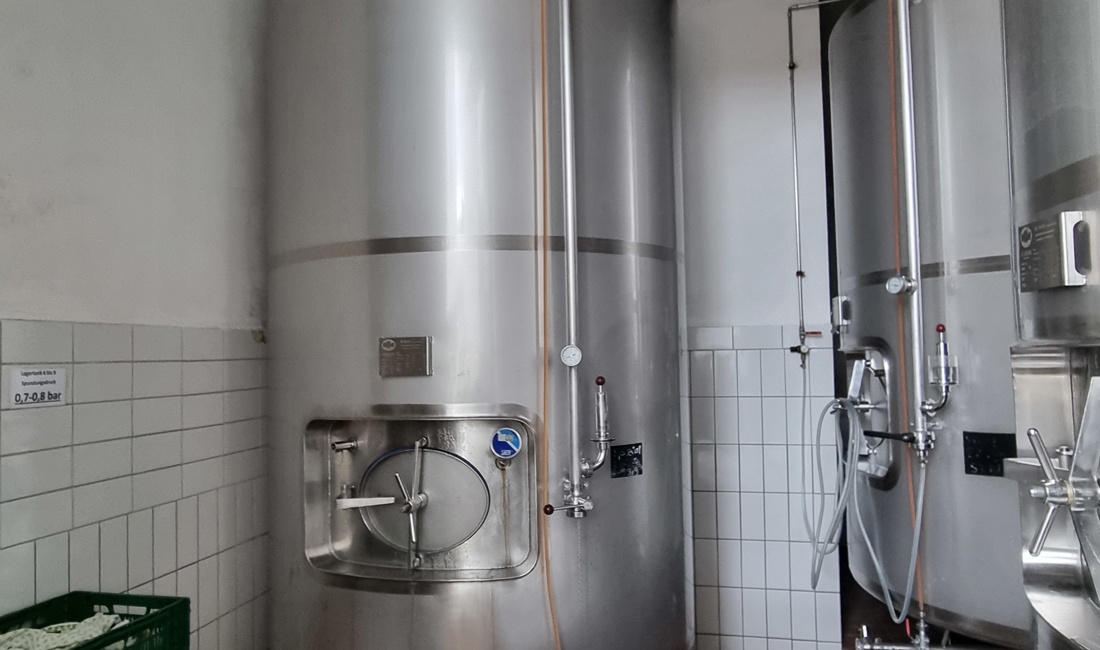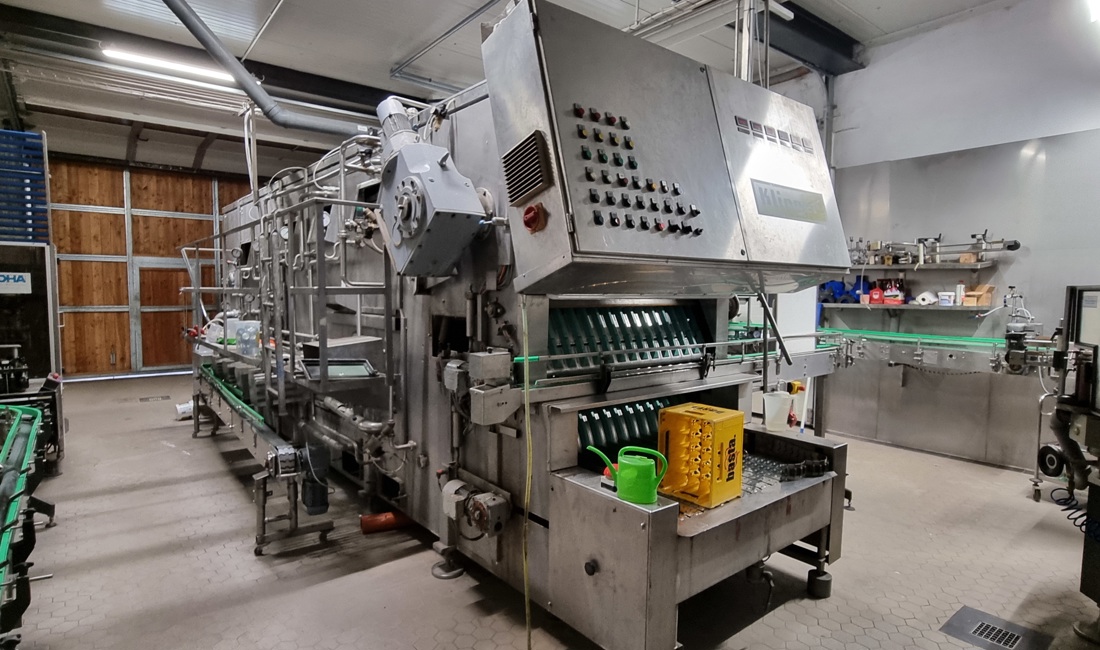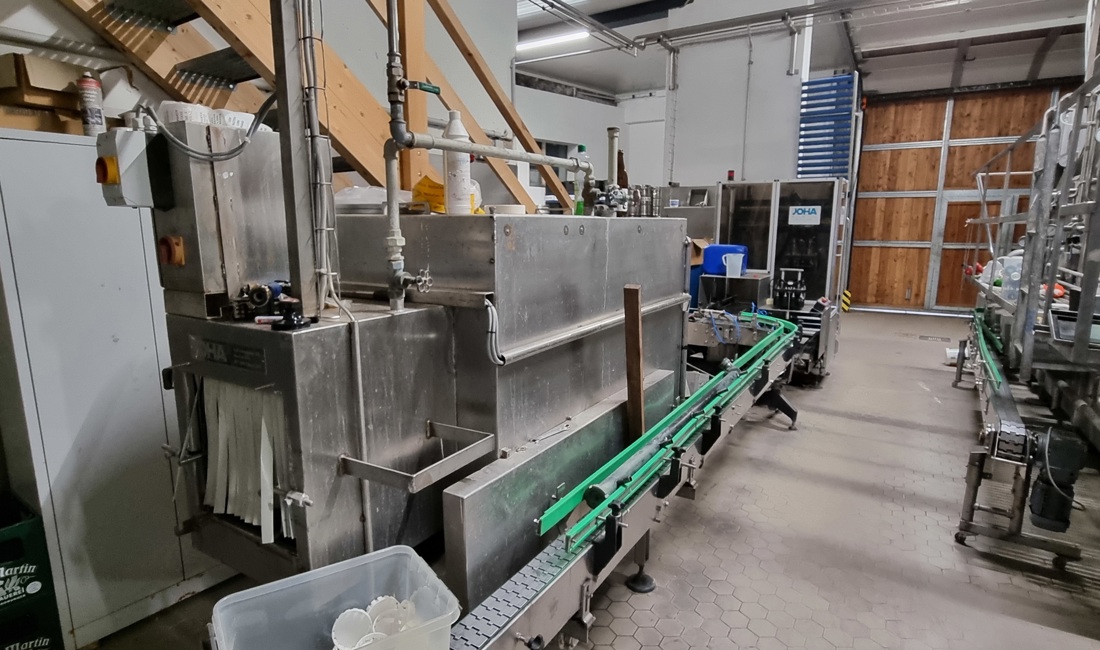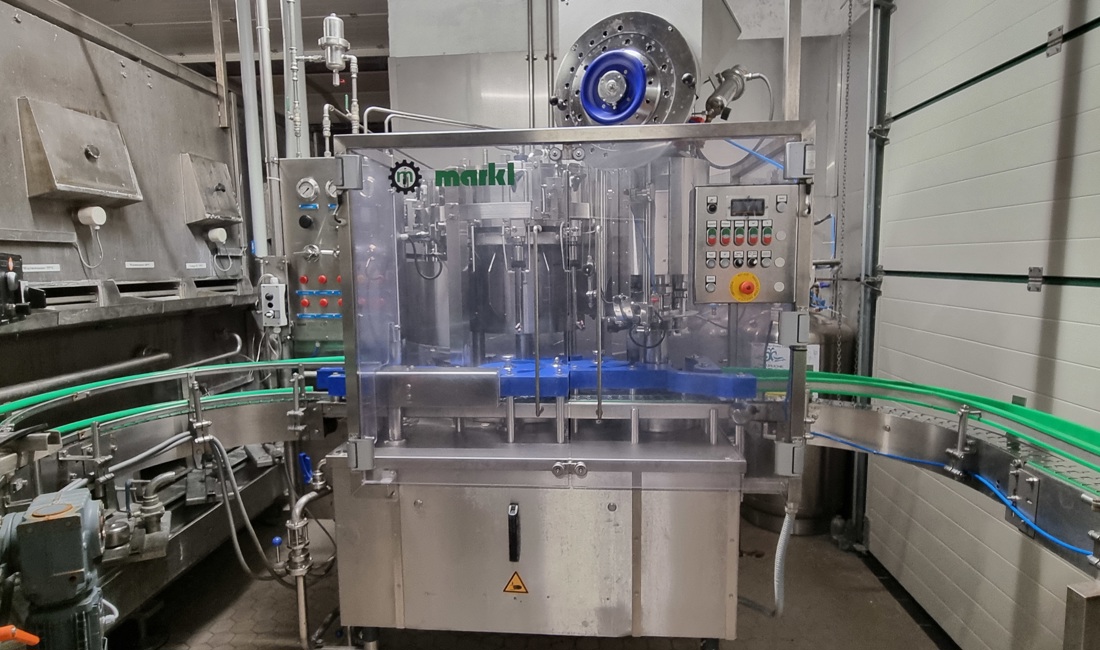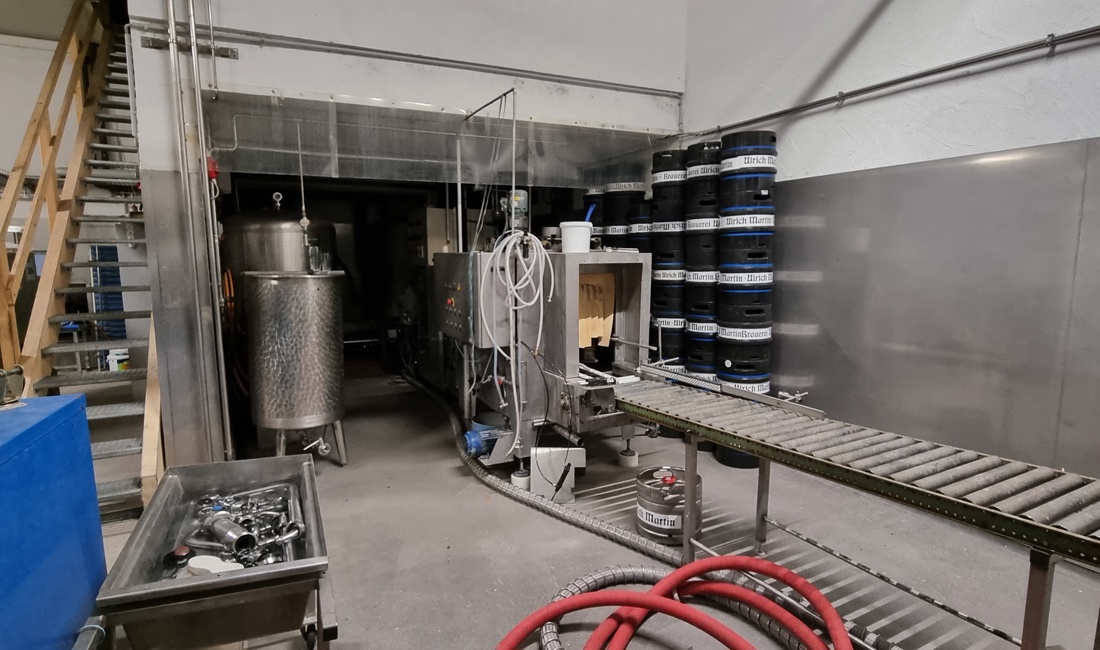Brauerei Ulrich Martin - A Rare Revival in Franconia’s Brewing World
Not far from the the picturesque town of Haßfurt in Hausen, Franconia, lies a brewery that stands as a testament to the passion and dedication of its founder, Ulrich Martin. With a history steeped in tradition and a commitment to innovation, Brauerei Ulrich Martin is more than just a place where beer is brewed—it's a story of transformation, community and a deep love for the craft.
The site of today's brewery first saw beer being brewed in 1850. Lorenz Fratz was the founder. The brewery remained family-owned for 100 years, with only the name changing through the marriages of its female descendants. Thus, the Fratz Brewery became the Weinig Brewery and later the Gehling Brewery. By the mid-20th century, breweries began to decline. The Hausener Brewery also closed, leaving only the malt house in operation—until 1982. The malt house eventually shut down as well, unable to compete with the larger breweries and struggling to keep up with modern brewing technology. When the last brewer and innkeeper, Georg Gehling, passed away, his widow sold the property to the Hiernickel Brewery in Haßfurt. Instead of maintaining the brewery, they leased out only the tavern, leaving the brewery to decay. When the last tenant left in 2002, the tavern, too, fell into disrepair. The brewery lay dormant for 58 years until a visionary brewer decided to breathe new life into the venerable building.
From Ruin to Revival
The journey of the current brewery began in 2007 when Ulrich Martin, a seasoned brewmaster from Mainberg, purchased a dilapidated property that no longer housed a brewery. Trees grew out of the tavern's roof, and water seeped into the sandstone walls. But for Martin, this wasn't just a property; it was a dream waiting to be realized. With the help of architects, friends, and family, he transformed the site - a former barn - into a fully operational brewery in just seven months. “I preserved the architecture, especially the facade of the old brewery building, and adapted the brewing technology to the former rooms. For example, the former pump house of the brewhouse now houses most of the fermentation cellar. The old fermentation cellar remained half a fermentation cellar (now with stainless steel tanks), while the other half became a storage cellar." Martin states and adds: "Today’s brewhouse is located in a former barn. I also preserved and renovated the roof over the old cooling ship as well as the chimney of the malt kiln. The former threshing floor is now the cask cellar.”
In 2008, the brewery was reopened with great fanfare. This monumental task was made possible by Martin’s resourcefulness. Not only did he transform the ruin into a functional brewery in a short time, he also negotiated deals for used equipment, and adapted to challenges with creative solutions. Piece by piece, he assembled a modern brewing facility within the historic walls, blending old-world charm with modern equipment. Ulrich Martin aimed not merely to pick up where the last brewers left off, but to propel the old brewing craft into the present with contemporary energy management and environmentally friendly technology.
Founder, brewer and owner Ulrich Martin
Environmental Protection and Brewing Hand in Hand
The traditional beer with a modern twist is brewed using environmentally friendly heat recovery methods. Up to 75% of the heating energy used in the brewing process is recovered as hot water and repurposed, ensuring little energy is wasted. Furthermore he tirelessly works on making his brewery even more eco-friendly. A significant step in this direction was the Naturland certification in 2019.
The brewery sources barley for its Gutsbier from Gut Obbach, where the grain is grown according to Naturland's strict guidelines. Barley for other beers also comes from local farmers and is malted and dried at the nearby IREKS malthouse in Schweinfurt. "I source my organic hops from a farm in Gräfenberg. The farmer, Friedrich, does an excellent job producing high-quality organic hops." The conventional hops are from Spalt and the varieties are Perle and Spalter Select for the entire range of beers.
Water quality posed an early challenge, as the local supply was too hard for optimal brewing. Martin implemented a reverse osmosis system, softening the water to ideal levels for the brewery's range of beers.
As for mashing the quality of Schubert’s malt allows for single infusion, eliminating the need for decoction while still maintaining depth of flavor and enzymatic activity. A method which is not that common in the region but it is gaining more popularity.
Every style undergoes a 70 minute boil and while honoring Franconian beer styles, Martin has expanded the brewery’s portfolio to include eight varieties, showcasing his philosophy: “Beer is more than just Helles”.
Sustainability is a cornerstone of Brauerei Ulrich Martin. Martin employs solar energy to preheat cleaning solutions and has incorporated water recycling systems to minimize waste. These measures not only reduce costs but also align with modern consumer expectations for environmentally friendly products.
From Gutsbier to Specialty Brews
The brewery's offerings reflect a balance between Franconian tradition and Martin’s innovative spirit. Core beers like Pils and Spezial (Vollbier) honor regional brewing heritage, while specialty brews, such as one crafted for Martin’s wedding, add a personal touch to the lineup.
The Pilsner impresses with its inviting aroma and well-balanced flavors. On the nose, the beer exudes a clean and floral bouquet, evoking fresh blossoms in full bloom. This floral quality is intertwined with notes of freshly cut grass, a subtle touch of biscuit provides a gentle malty undertone, adding depth without overpowering the beer's light, refreshing aroma.
Across the palate there is a graceful interplay of flavors, beginning with a soft hint of lemon zest that brightens the overall profile. The grassy accents carry through, reinforcing the beer's fresh, natural qualities. These are complemented by delicate floral notes, which add an aromatic complexity that lingers with each sip.
The finish is where the Pilsner truly shines. A lingering bitterness emerges providing a satisfying counterpoint to the beer's lighter elements leaving you thirsty for more - 4.3.
The Josephi Bock is a well-structured and malt-driven brew that embodies the rich yet balanced character expected of the style. Right from the first aroma, it announces itself as a malt-forward beer, exuding warm, inviting scents of lightly toasted grains and a touch of caramelized sweetness. The beer’s good body provides a satisfying mouthfeel, reinforcing its depth without veering into heaviness.
On the palate, the interplay between malt and hops is where this Bock truly shines. The floral Spalter hops make an elegant impression, contributing soft herbal and earthy notes that provide contrast to the malt’s natural sweetness. The pale sweet malt takes center stage, offering smooth, bready flavors that evoke fresh-baked crusty bread and a hint of delicate honey. This honeyed undertone is subtle rather than cloying, giving the beer a refined sweetness that feels rich but never overwhelming.
What makes this Bock particularly well-executed is the balance achieved through high-temperature mashing. This traditional technique enhances the malt’s residual sweetness, but instead of becoming overly sugary, the beer maintains a structured equilibrium thanks to a generous dose of bittering hops. These hops lend a firm but well-integrated bitterness, ensuring a clean, drinkable finish that lingers just enough to invite another sip.
At 4.2, the Josephi Bock is a prime example of a skillfully brewed, well-balanced Bock—full-bodied yet highly drinkable, rich yet never cloying, making it a true pleasure for those who appreciate the style.
Their Helles Rauchmärzen is an excellent representation of a style that has seen a resurgence in Franconia, blending the region's passion for classic lager brewing with a touch of smokiness.Upon tasting, the beer captivates with a barnyard-like aroma, reminiscent of fresh hay and rustic farmhouse notes, interwoven with a subtle yet enticing smoky undertone. This is delicately complemented by the presence of floral hops, which bring a clean, aromatic brightness to the nose. On the palate, it starts with a rich, smoked malt character—chewy and satisfying, yet not overpowering—providing a backbone that grounds the beer. This is layered with the floral and fruity hop tones, offering a soft interplay of herbaceous and orchard-like flavors. There’s a vivid impression of meadow freshness, which enhances the drink's overall liveliness. The finish brings it all together with a lingering, well-rounded bitterness that provides depth and leaves the palate refreshed and eager for another sip - 4.5.
At the brewery's own Wirtshaus, guests can experience the harmony of freshly tapped beer and authentic homemade delicacies, all crafted with a deep respect for Franconian culinary traditions.
The team takes great pride in the origin and quality of every ingredient. Whenever the season allows, crisp vegetables and fresh salads come directly from the Birkmeyer nursery in Sennfeld, as well as from trusted regional family farms that share a commitment to sustainable agriculture. Meat and sausage specialties are sourced exclusively from own and local butcheries, including Metzgerei Müller in Untertheres and the renowned Auenland-Beef from Hofheim Ufr.. The bratwurst and wild boar bratwurst are handcrafted in-house, reflecting a dedication to traditional butchering techniques.
The ambiance of the Wirtshaus seamlessly blends history with comfort. While the furnishings maintain a classic brewery tavern charm with wooden tables, warm lighting, and cozy seating, subtle modern accents create an inviting atmosphere for both locals and visitors alike. The establishment embodies the spirit of Franconian Brauerei Gasthöfer, where good beer and great food bring people together in a welcoming, communal space.
The Wirtshaus - restaurant and pub
Building a Community Around Beer
Beyond brewing, Martin has cultivated a thriving community around his brewery. "Tourists often visit our brewery, especially from nearby cities like Bamberg. I enjoy showing them around and sharing our story. It’s rewarding to see people appreciate our beer and the effort we put into maintaining a traditional brewing style. I try to make their experience enjoyable and I’m always happy to show them around."- Martin tells.
Have the brewery and inn become a focal point for the community?
"There are a whole range of small moments that could illustrate this. Of course, our regulars' table, or the bikers who come every Sunday for Frühschoppen and on Wednesday evenings for their own regulars' gathering. Traditionally, we also host a Schweinfurter Schlachtschüssel several times in winter—these are usually sold out even before the dates are officially announced. Our Bockbieranstiche are popular, as well as private celebrations in our hall."
The Wirtshaus and brewery
Today, Brauerei Ulrich Martin stands as an example of dedication and ingenuity. With a streamlined production system capable of filling 3,500 bottles per hour, the brewery continues to grow while maintaining its commitment to quality and sustainability. Martin’s story is a reminder that passion, hard work, and a little ingenuity can turn daunting challenges into a thriving legacy.
The brewery also fosters strong ties within the brewing industry. Martin collaborates with other brewers, exchanging equipment, advice, and support. This tight-knit community has been instrumental in overcoming challenges, from securing used tanks to navigating bottling logistics. "For example, the brewery in Rüdenhausen played a role in our story, as did connections with old friends and colleagues from brewing schools. The brewing community is tight-knit, and we support each other. When equipment breaks down or when someone hears about a good deal on used tanks or machinery, we help one another."
As Martin reflects on his journey, the brewery’s transformation from a ruin to a flourishing business is a source of pride. “Sometimes, I reflect on how far we’ve come,” he says. “The journey hasn’t been easy, but it’s been worth every effort. Passion and determination have been the key to our success.”
With the growing adventurous spirit of modern beer drinkers, do you feel any pressure to diversify your beer portfolio beyond traditional Franconian styles?
My motto is: "Beer is more than just Helles." Mainstream beers like Helles don’t interest me. In 2008, I brewed three varieties: Spezial, Pils, and Weizen. Today, I brew eight varieties, all of which remain rooted in Franconian tradition.
As for the future Martin envisions a lasting legacy for the brewery - “Of course, I hope that our brewery and inn will continue to exist in the future. My daughters are still too young to make a decision about their professional future, but they have plenty of time. I will remain committed to our beer diversity and individuality. At the end of May, I will host the first Mainberger Schlossbierfrühling at Schloss Mainberg. I would also like to invite a second Franconian brewery and a small private brewery from abroad to present themselves there. If the event becomes established, the guest breweries should change every year.”
I for one wish Brauerei Ulrich Martin further luck and good times in the future. They have earned it.
For more pictures from the Brewery check out the gallery below.
